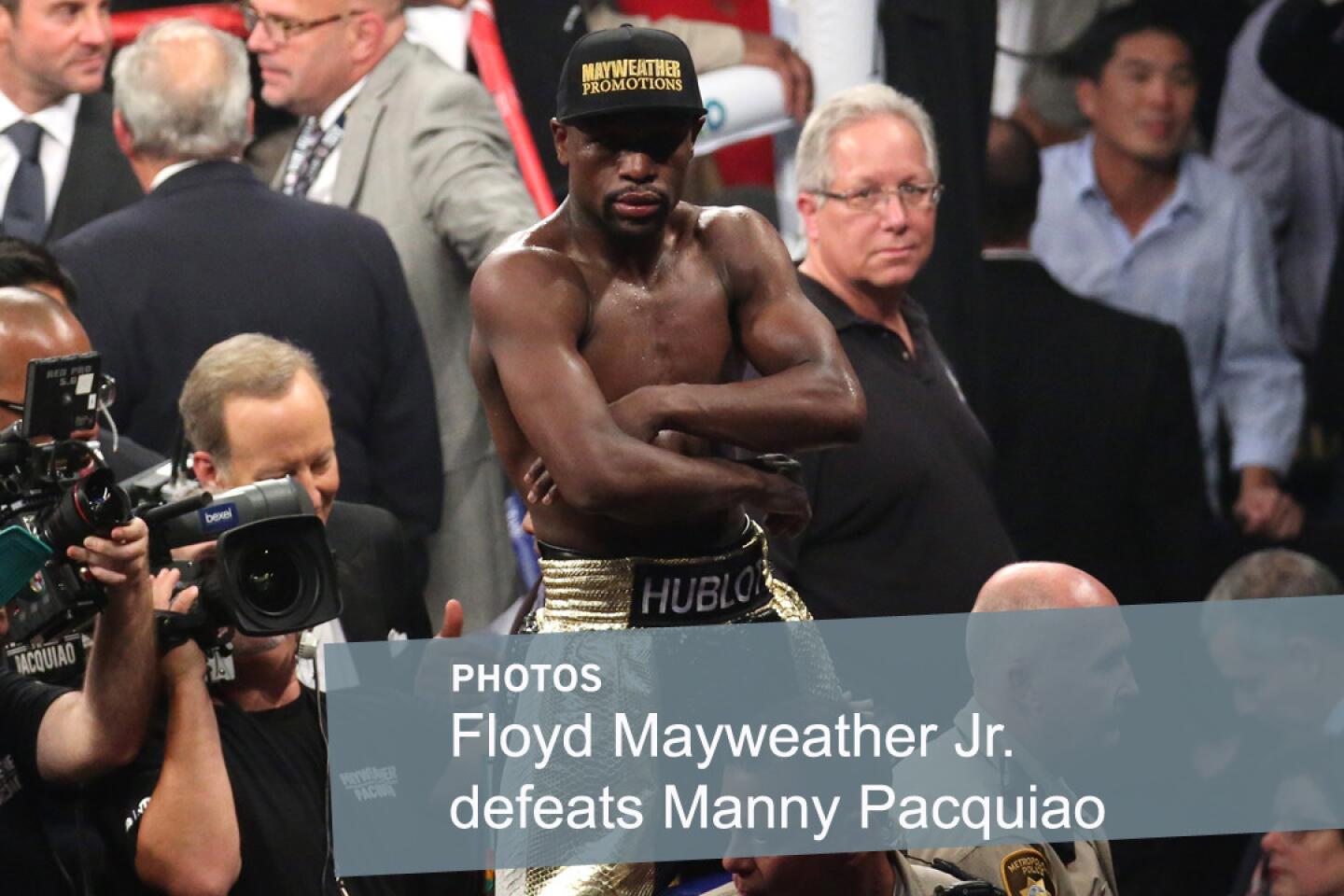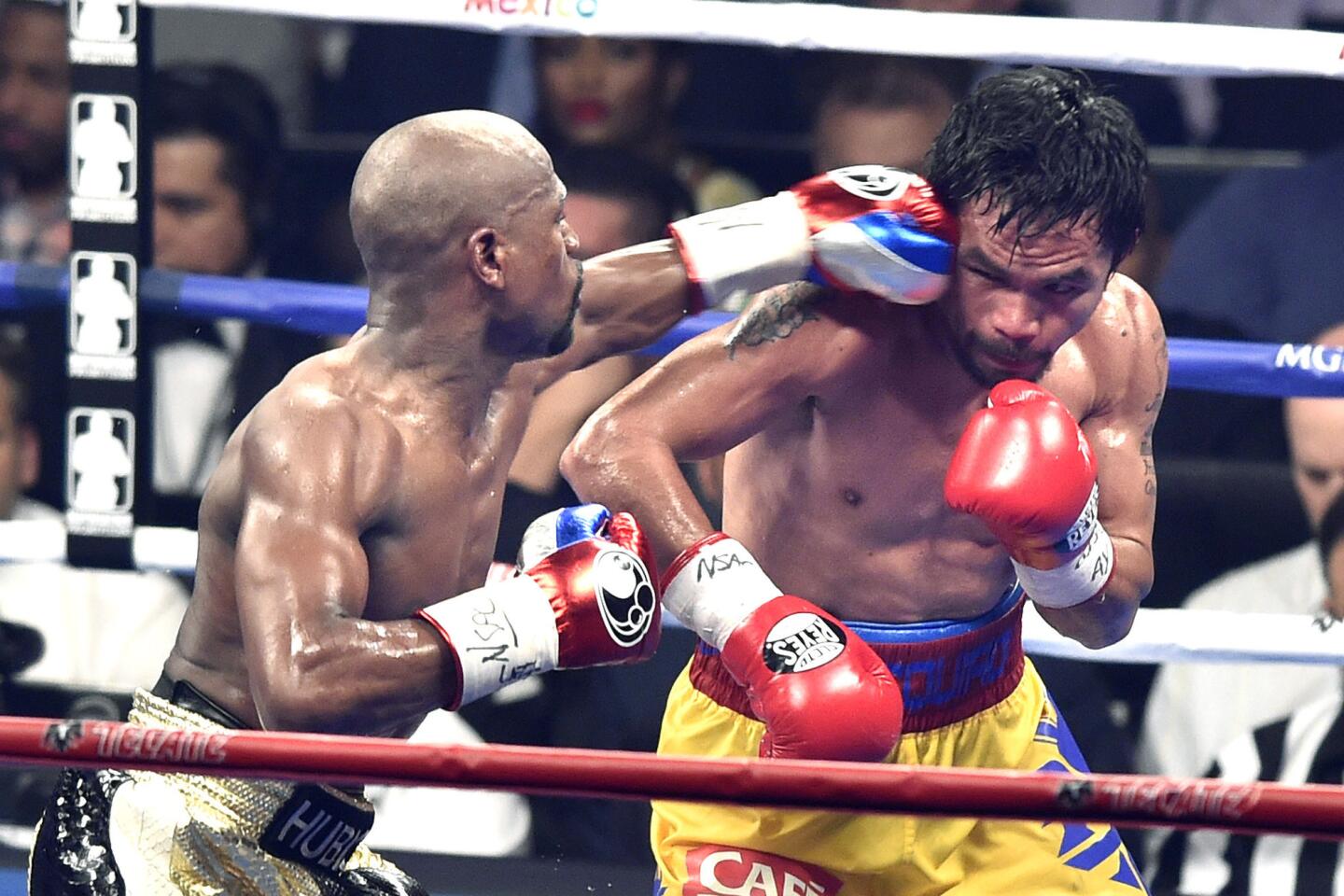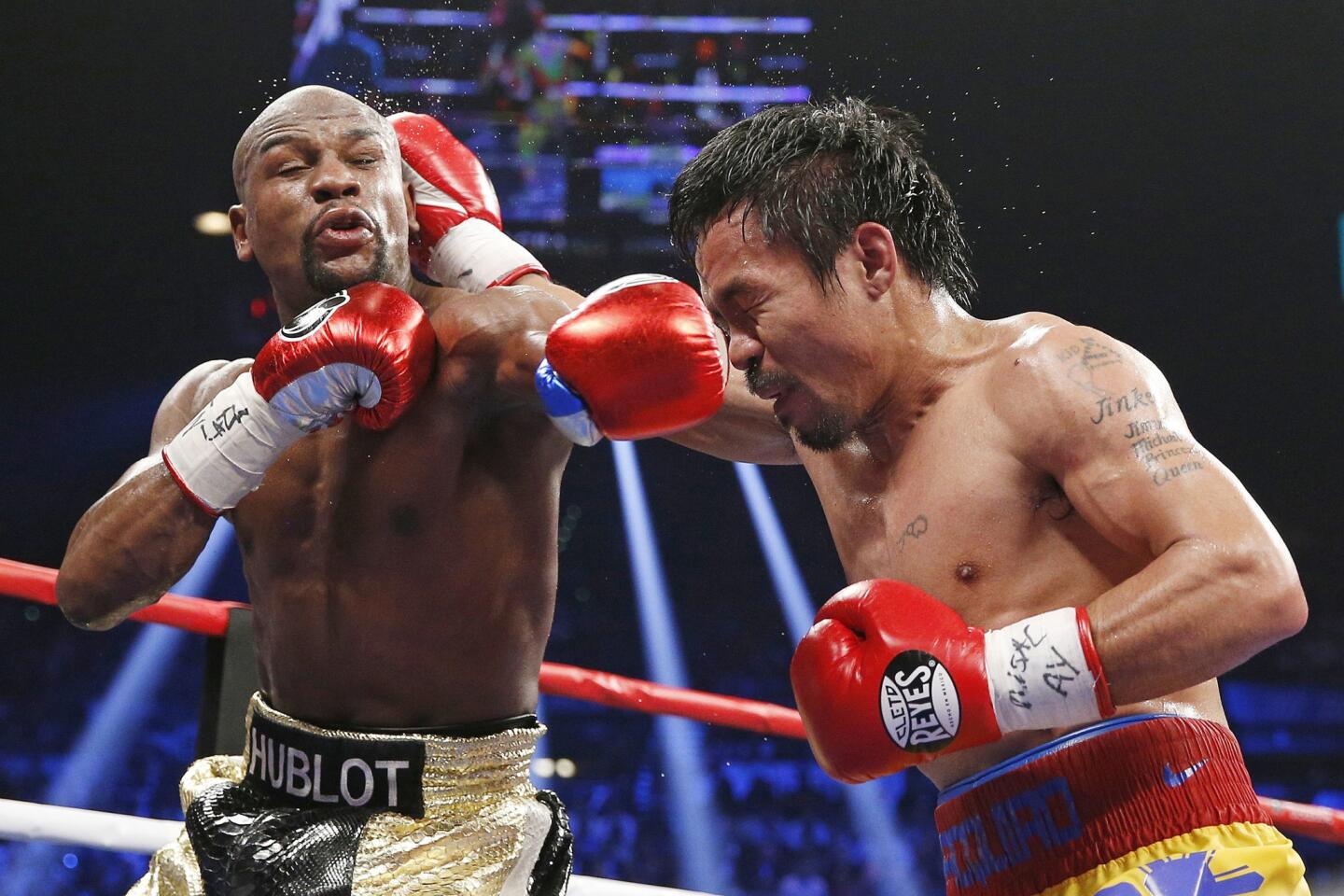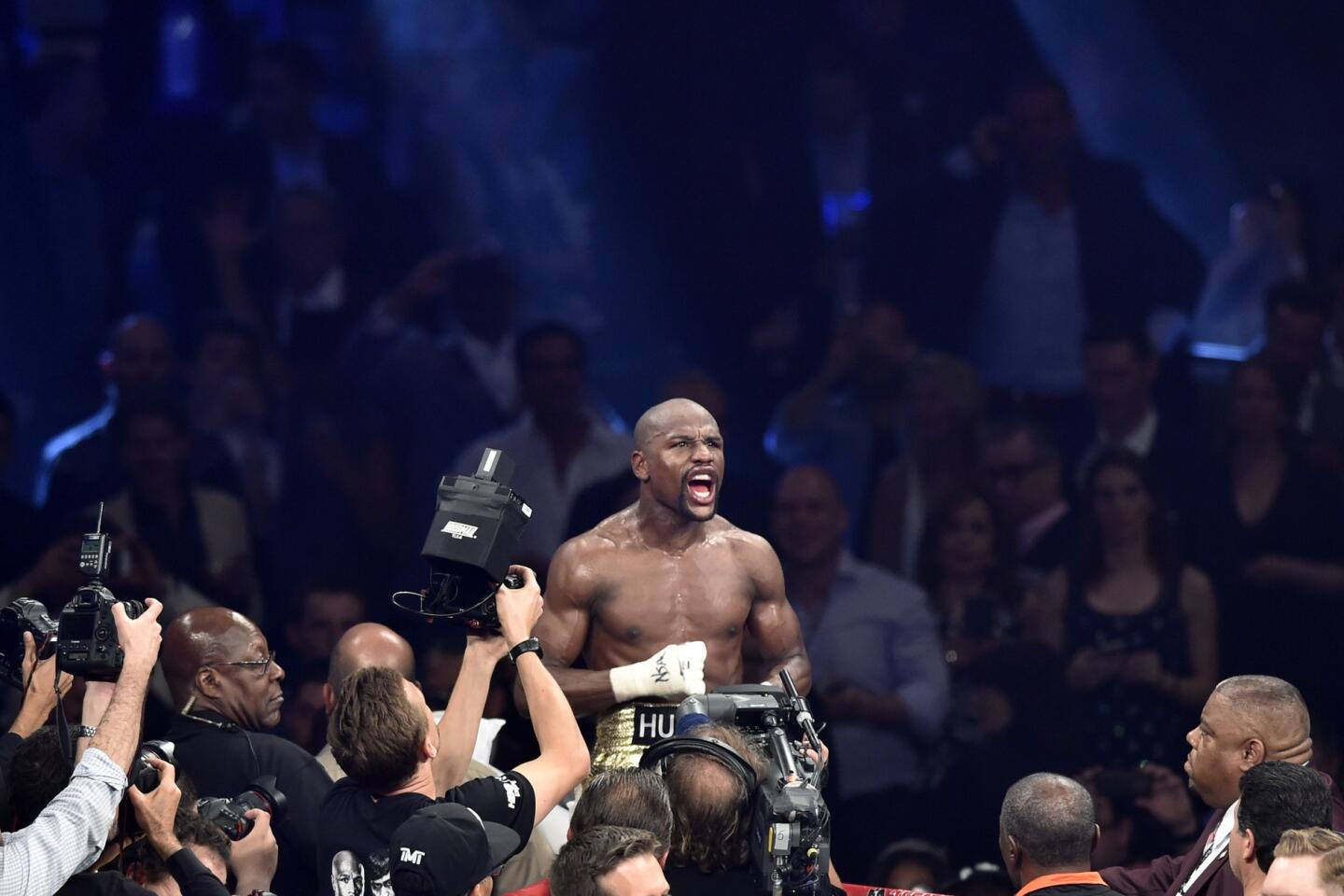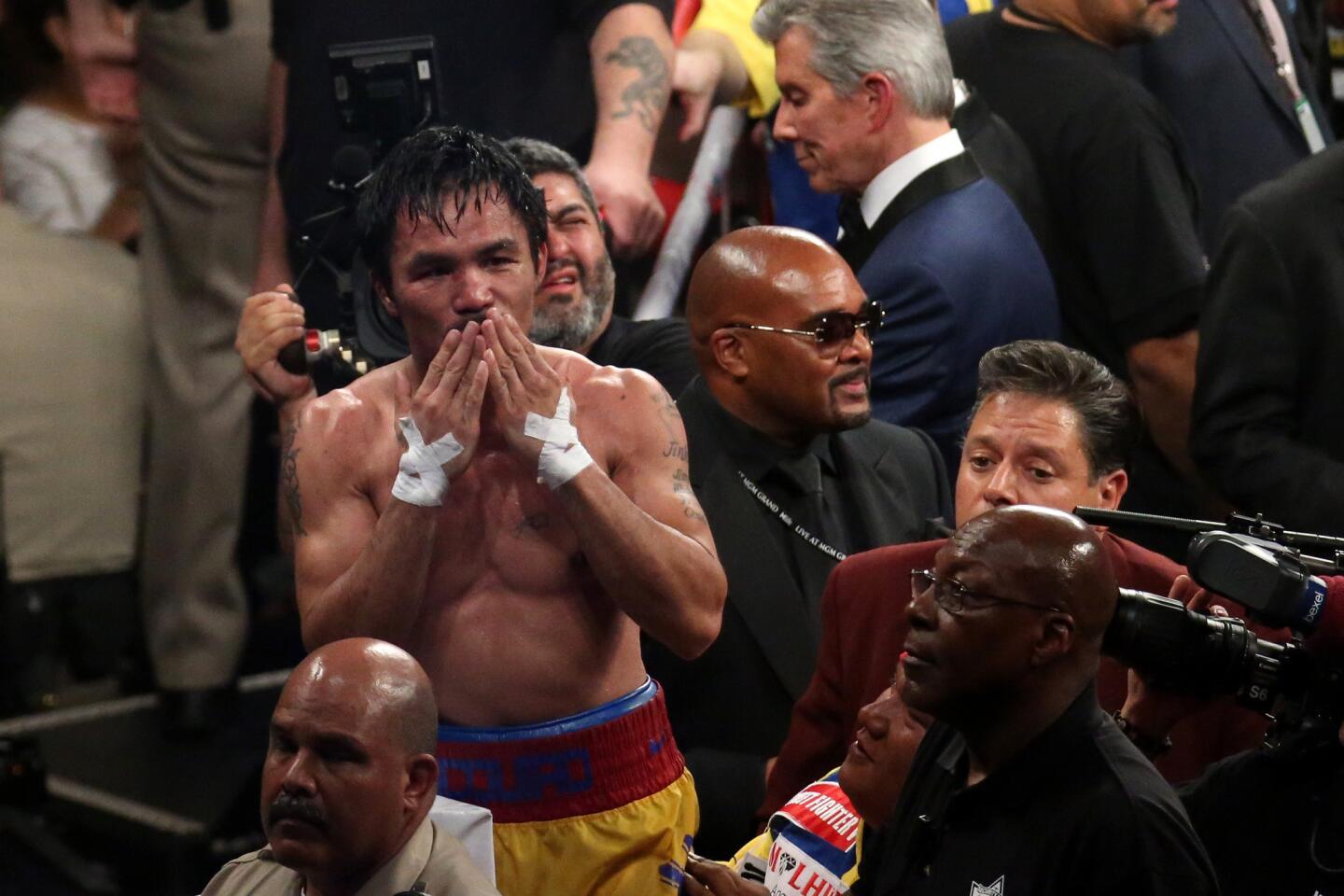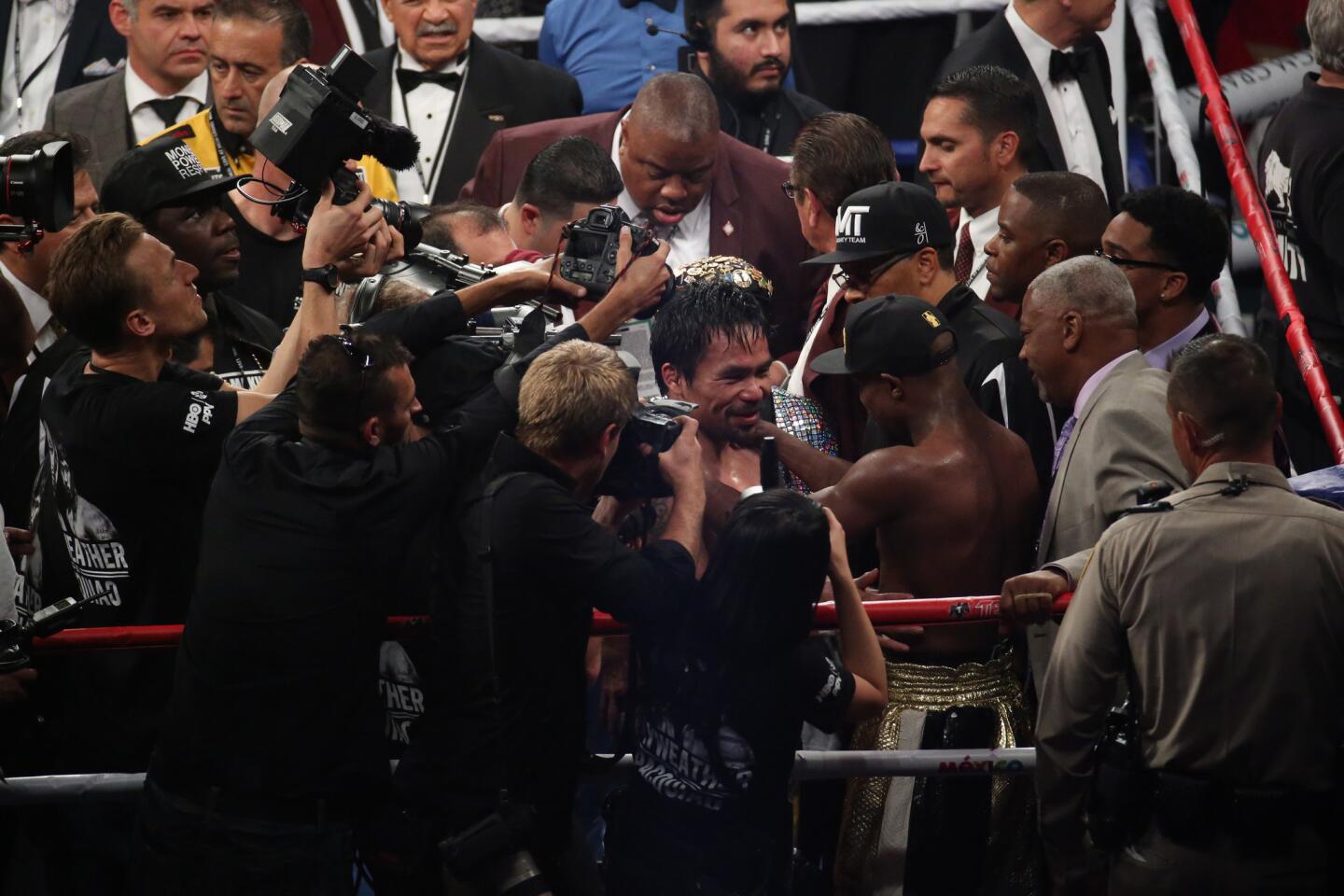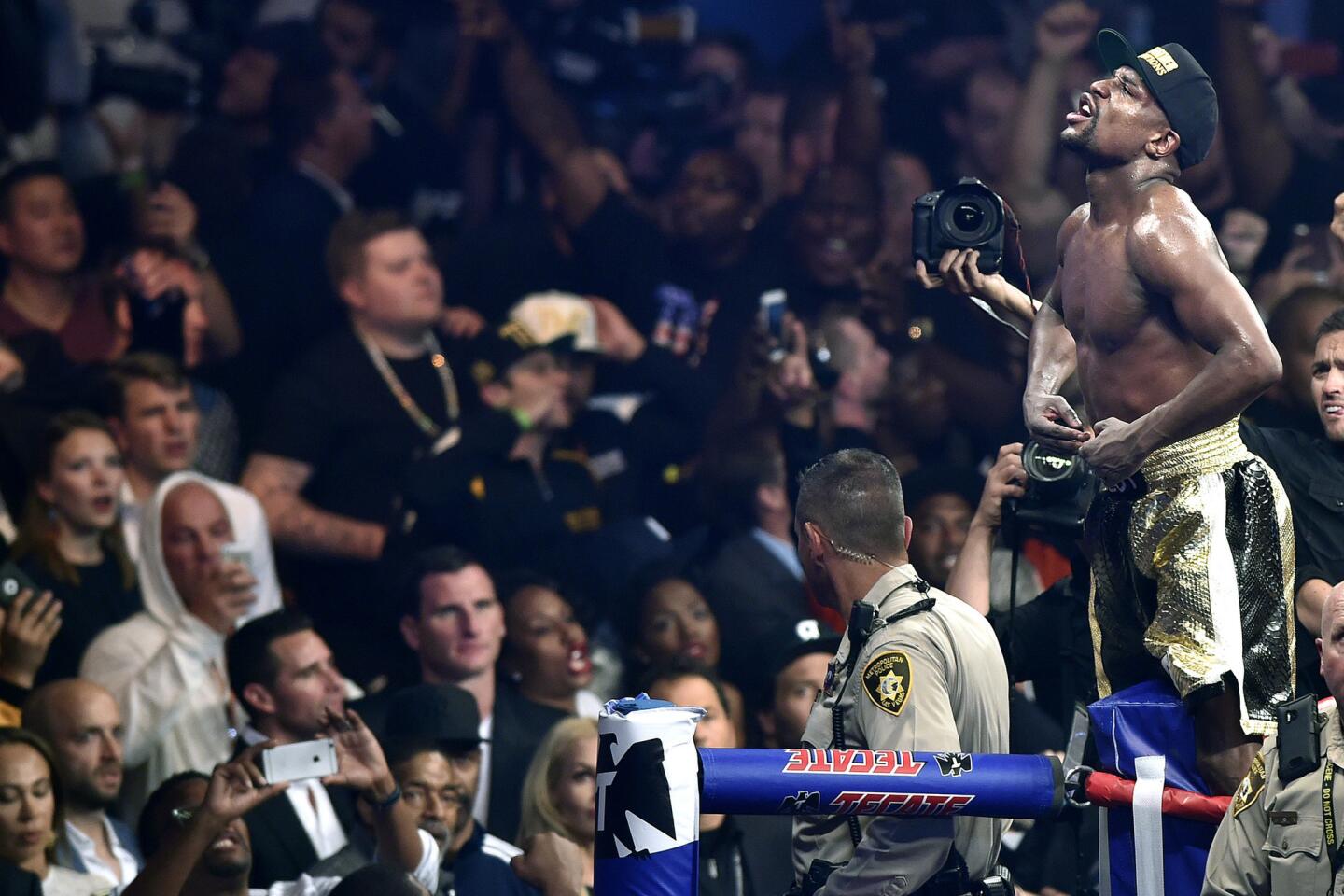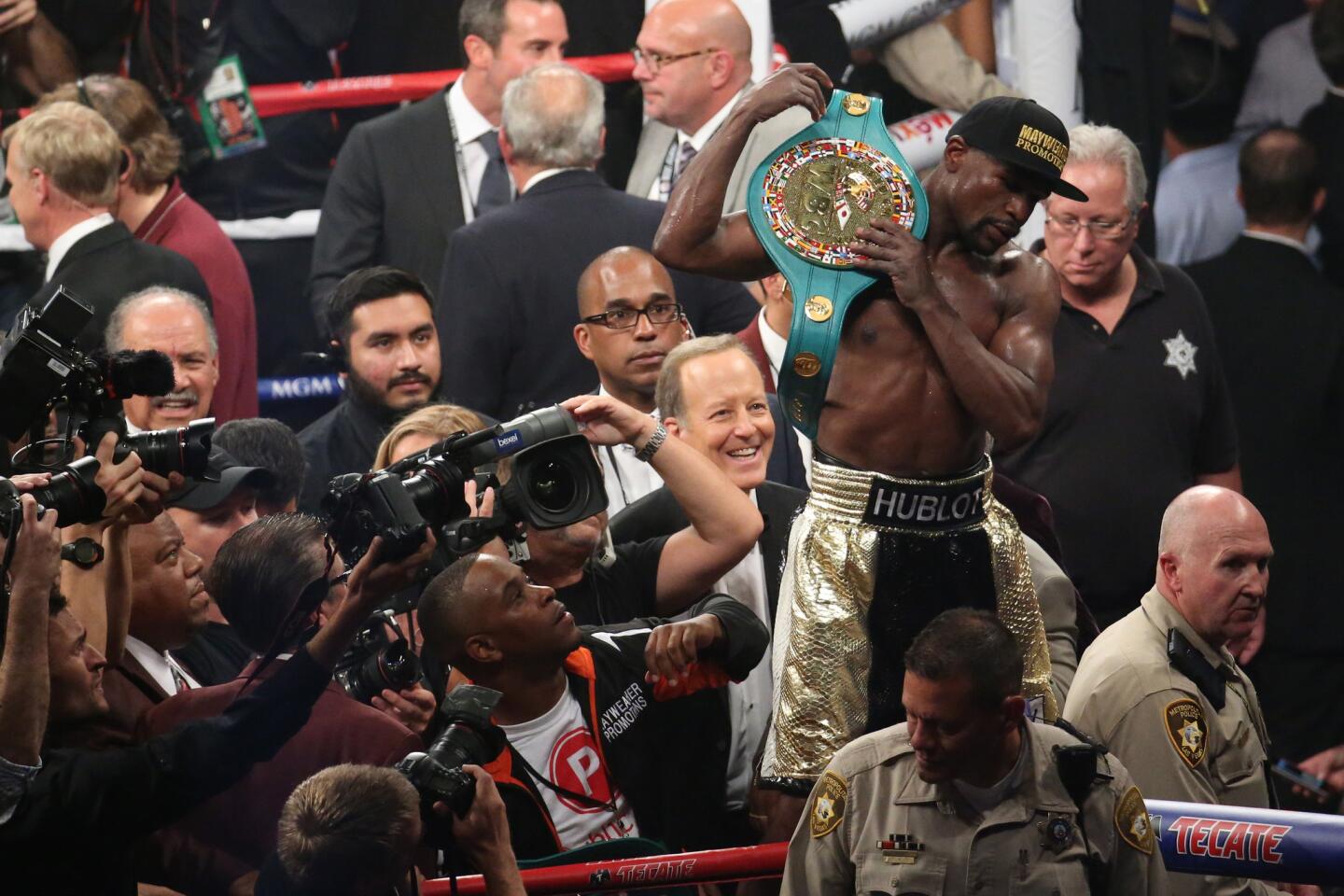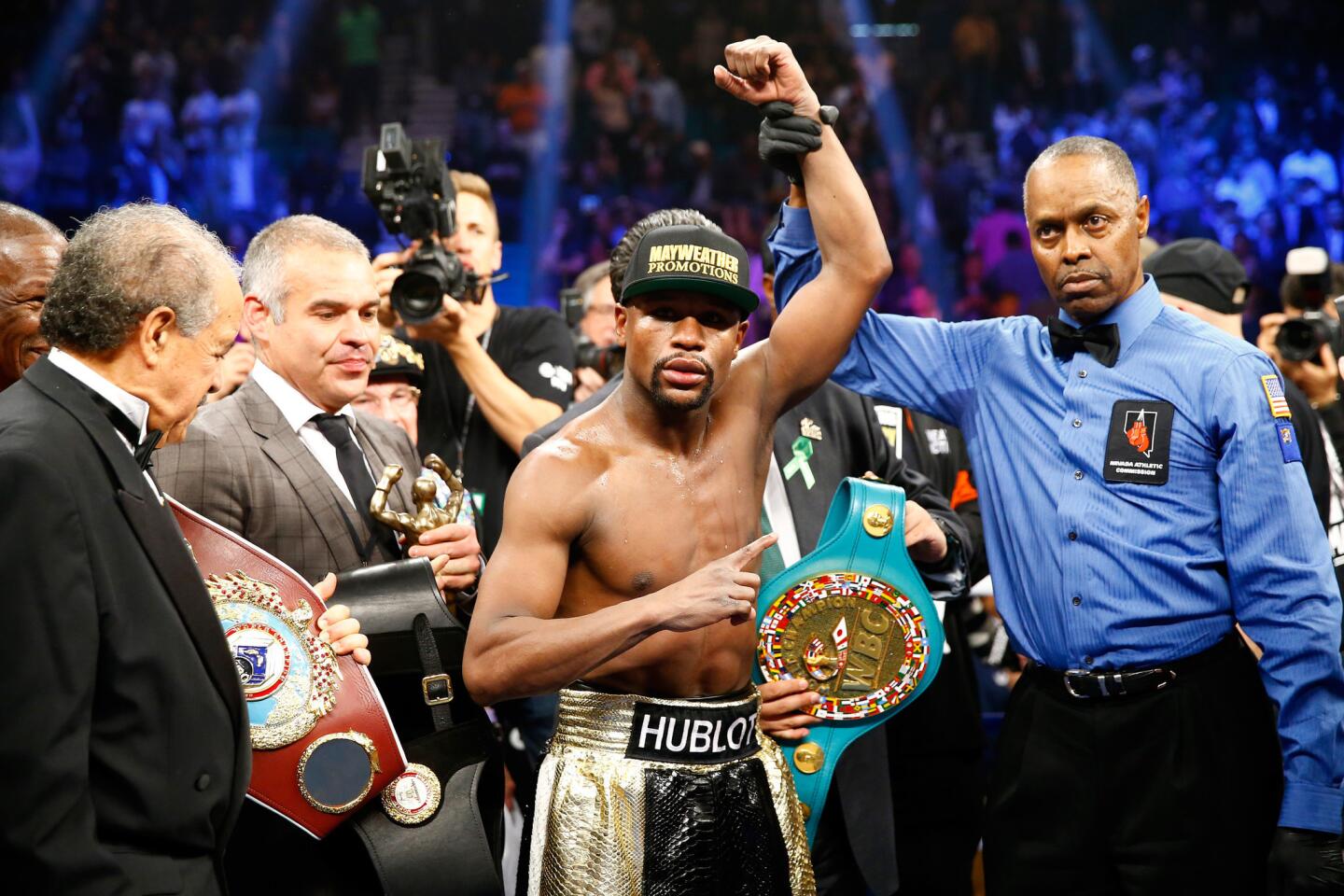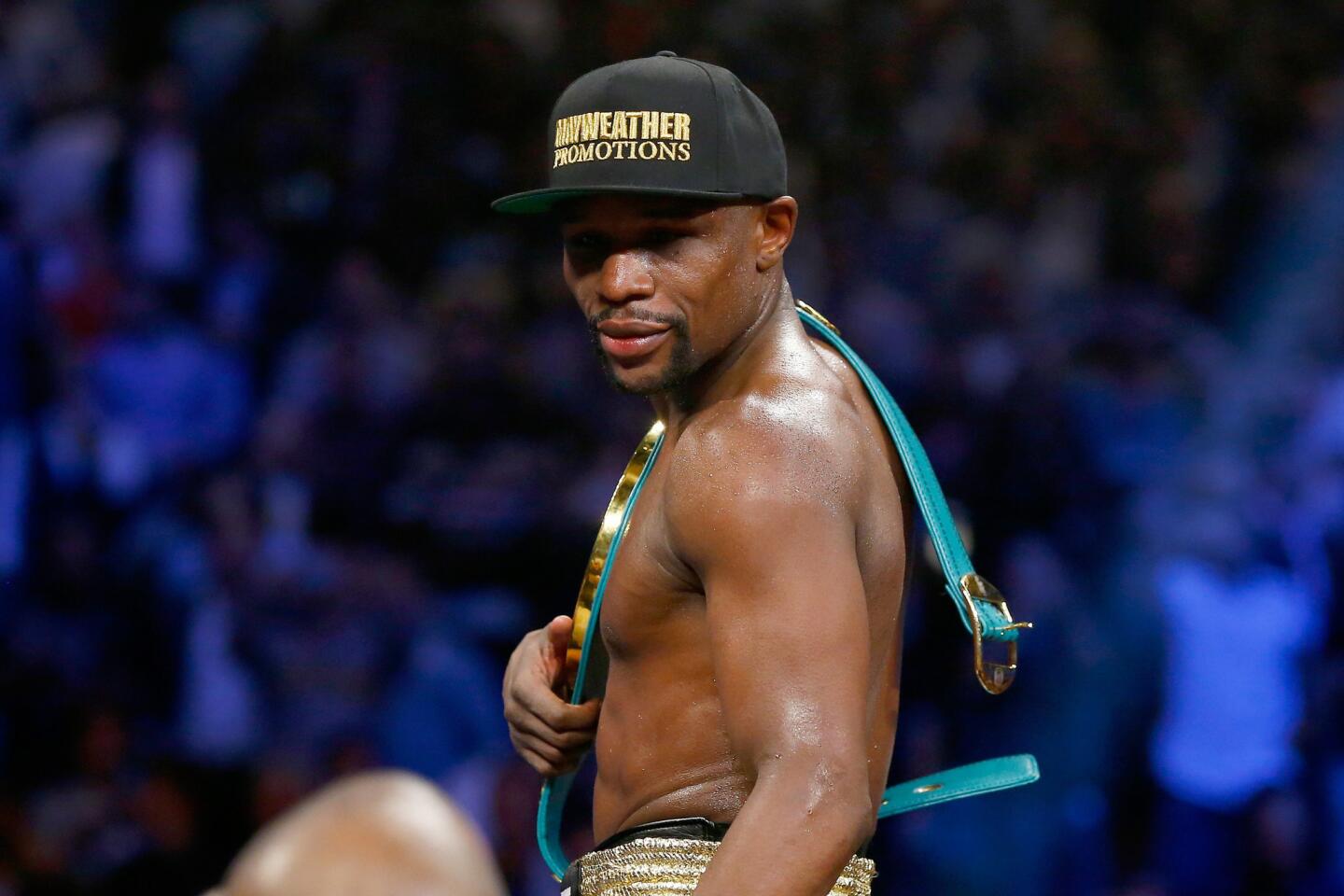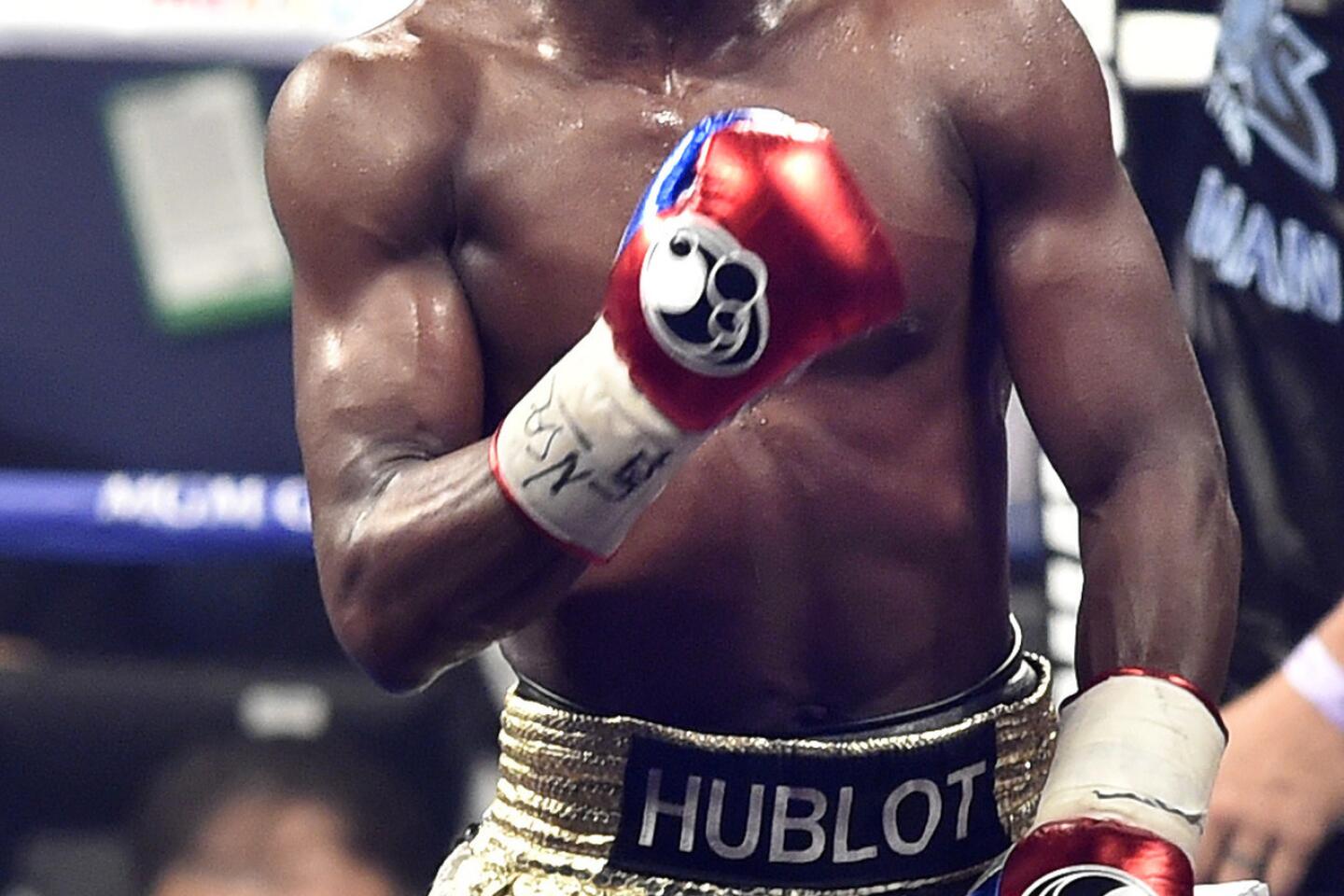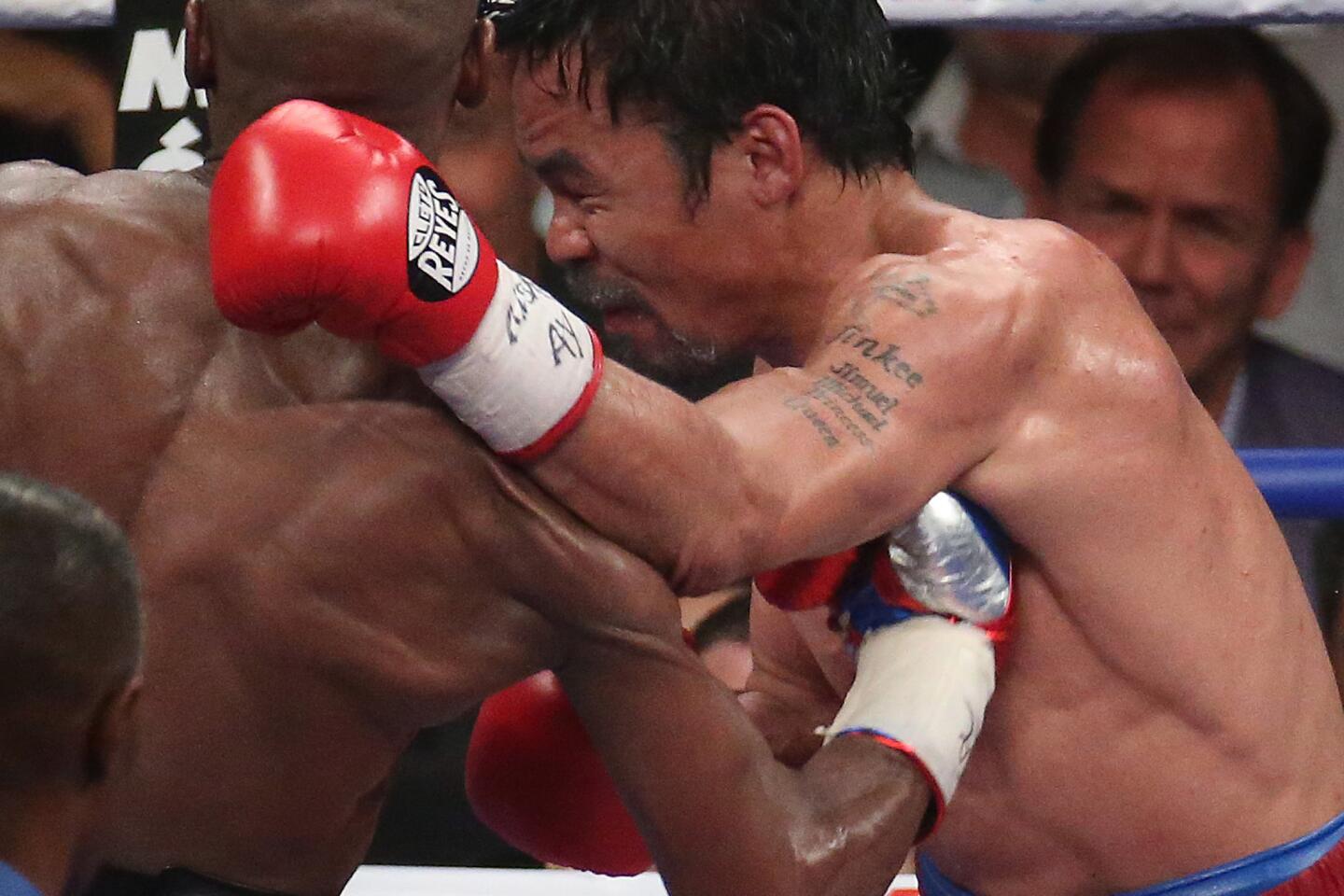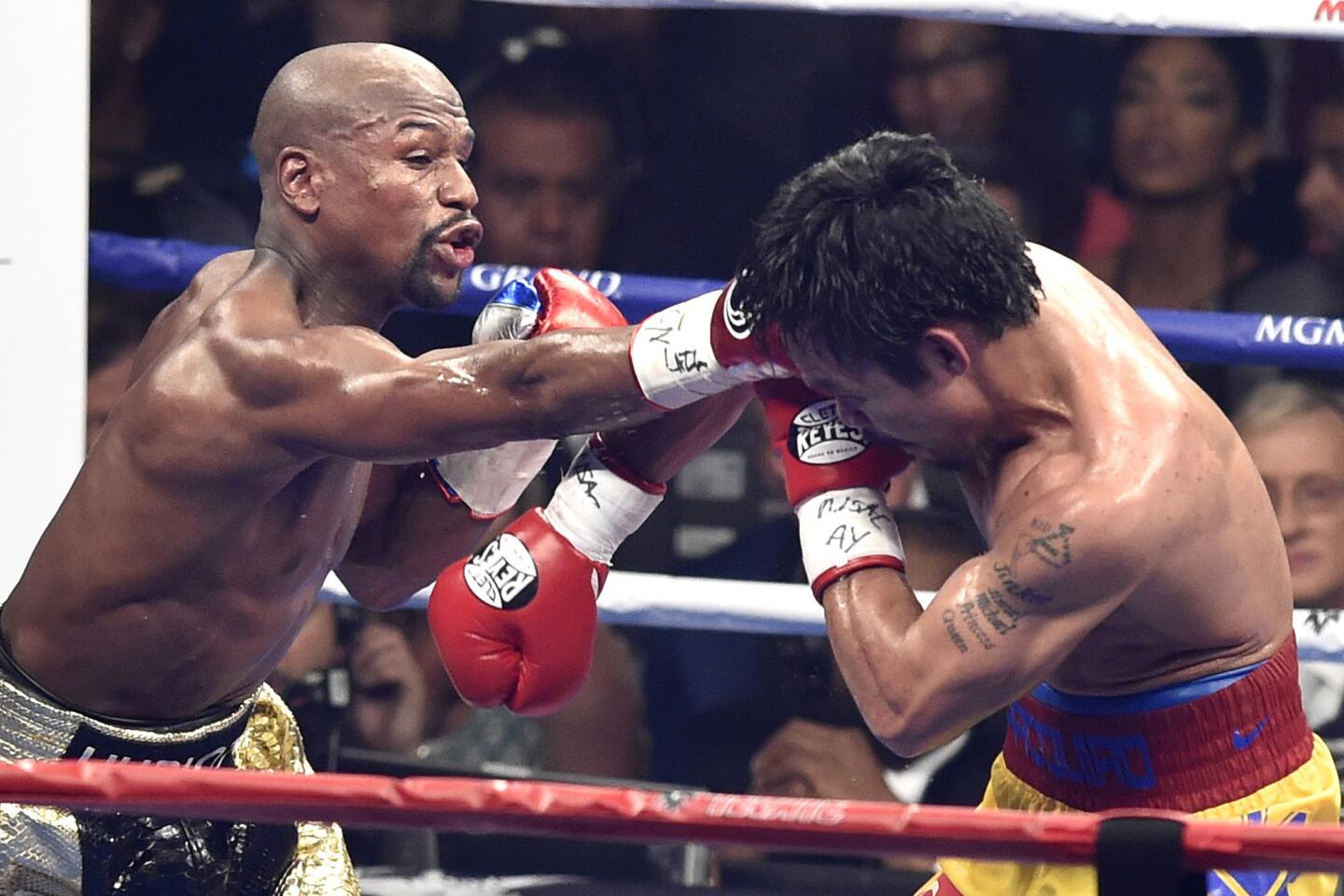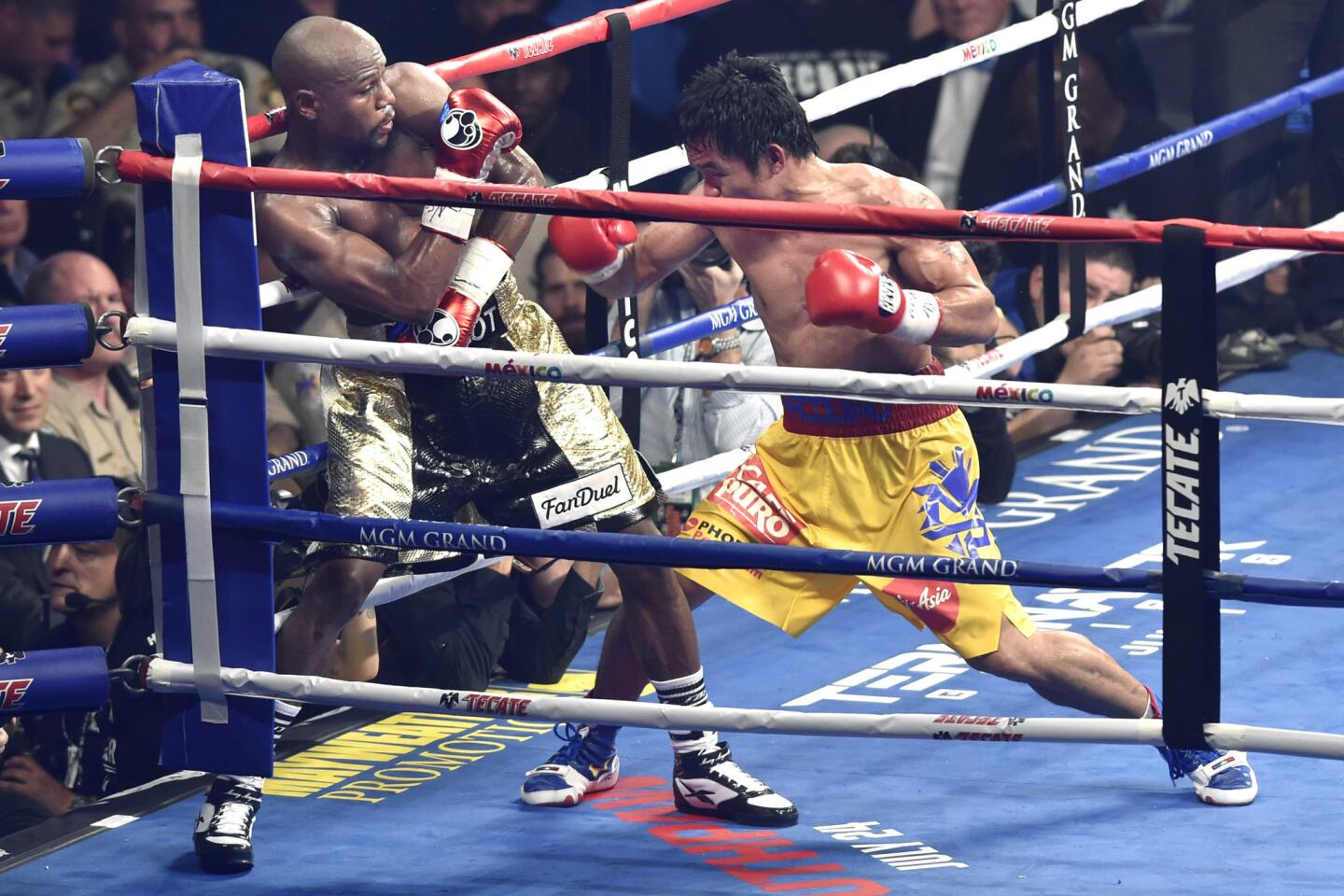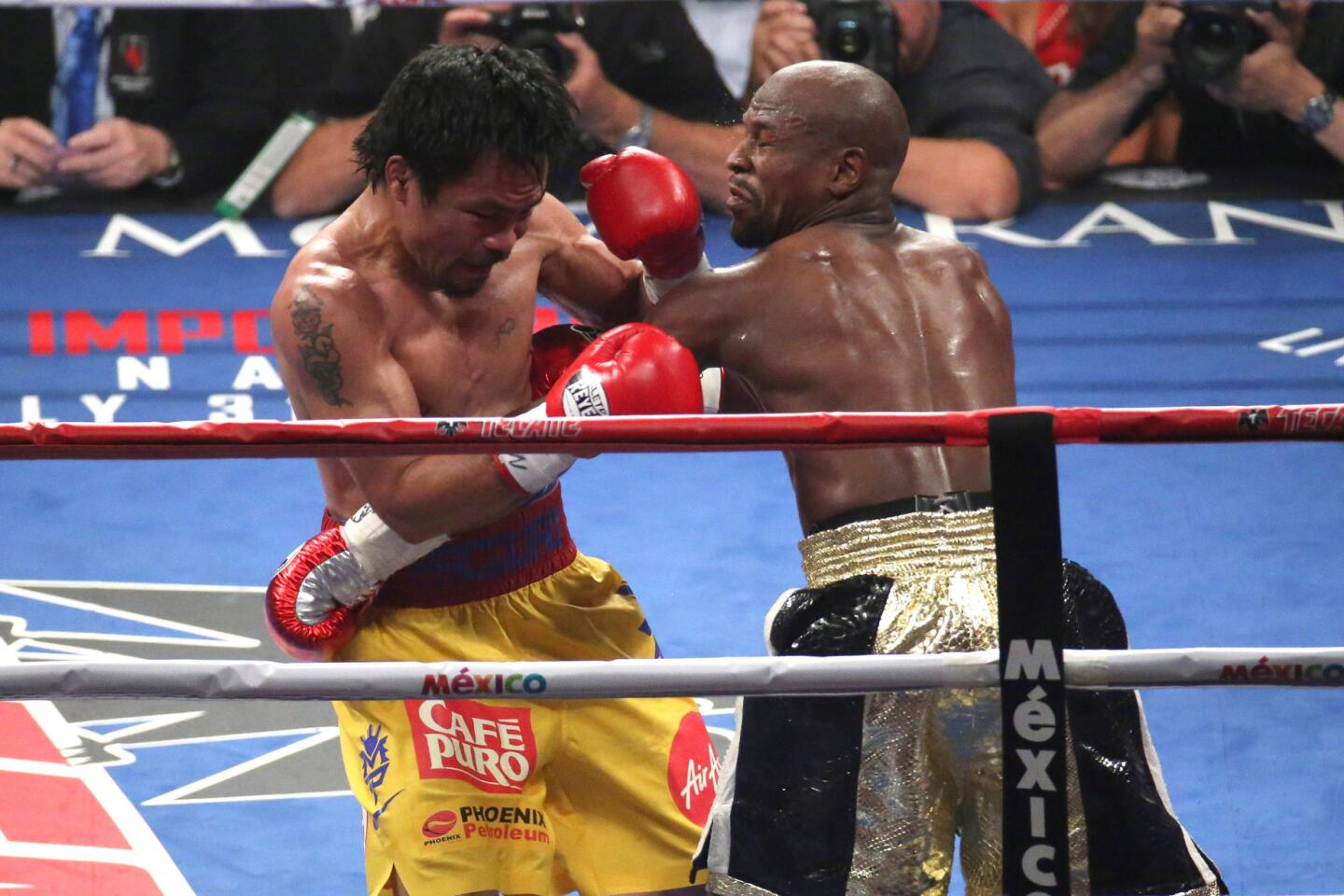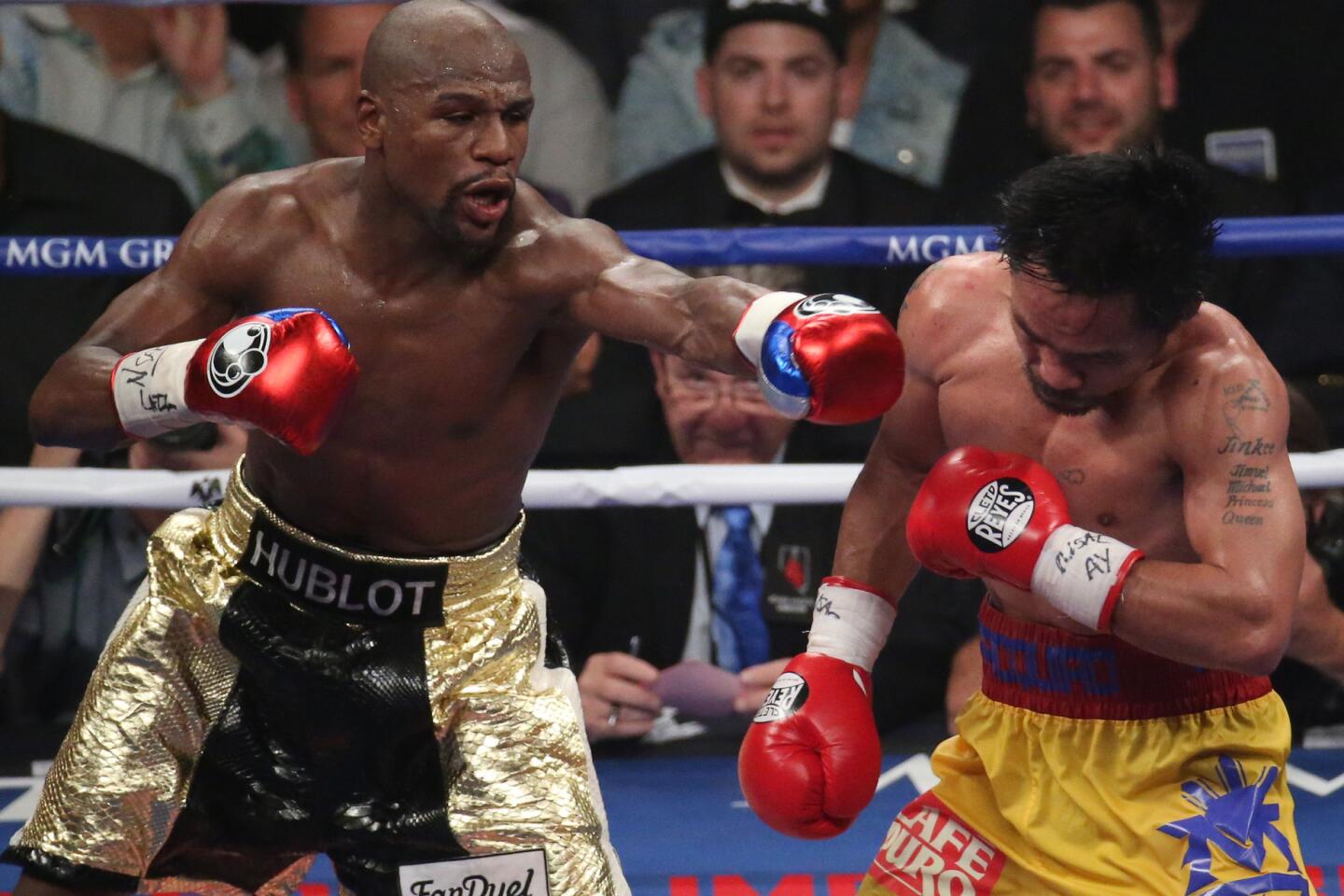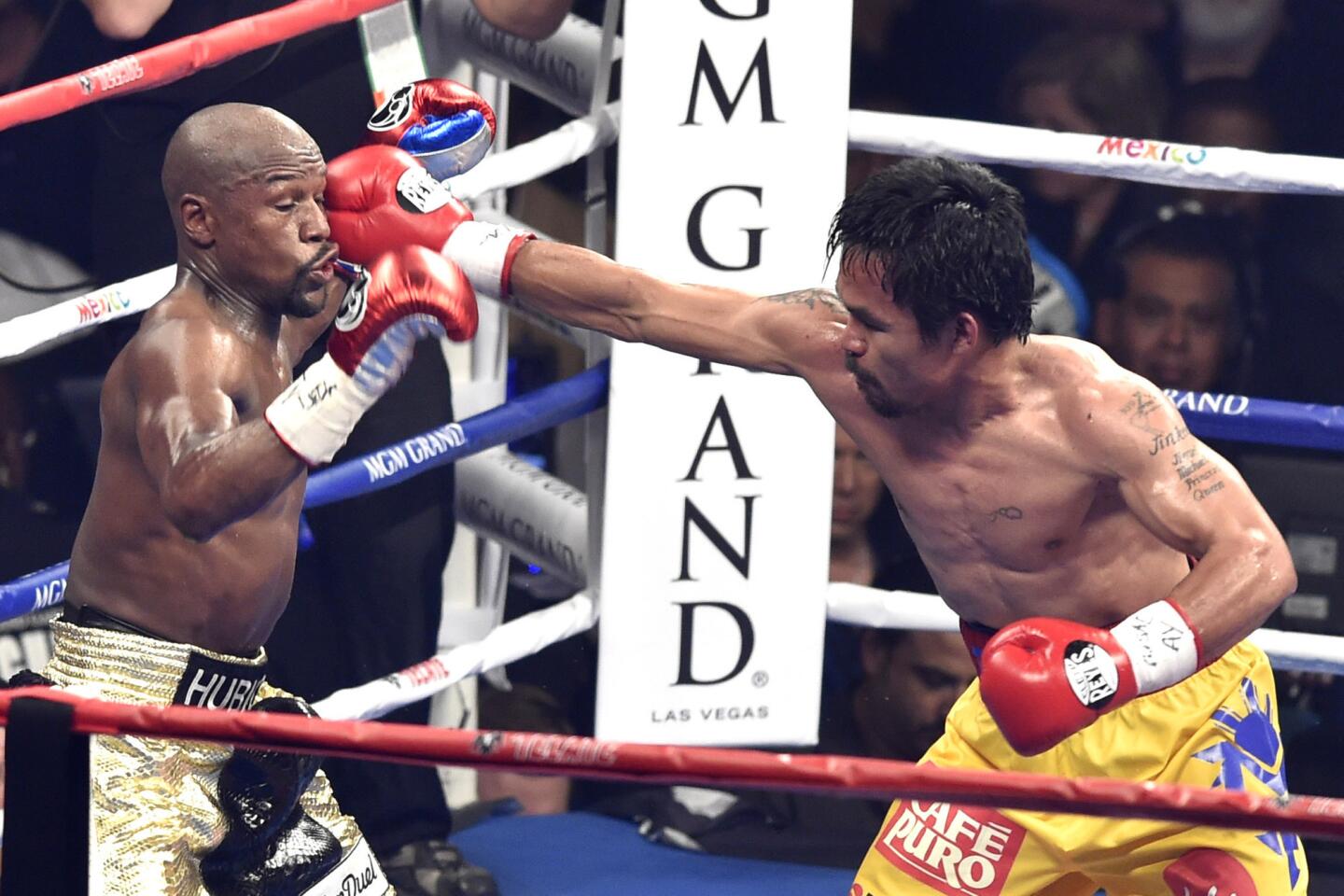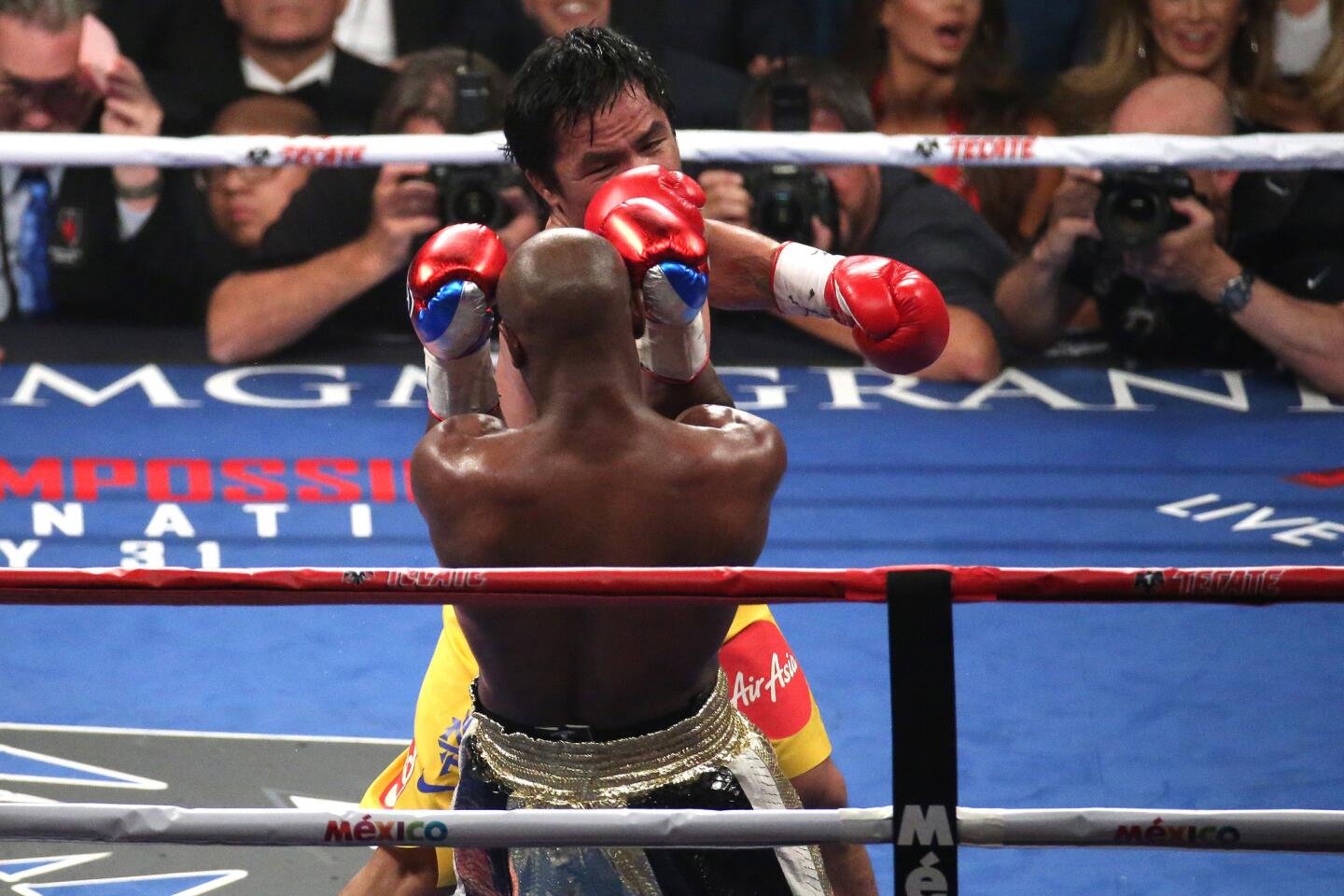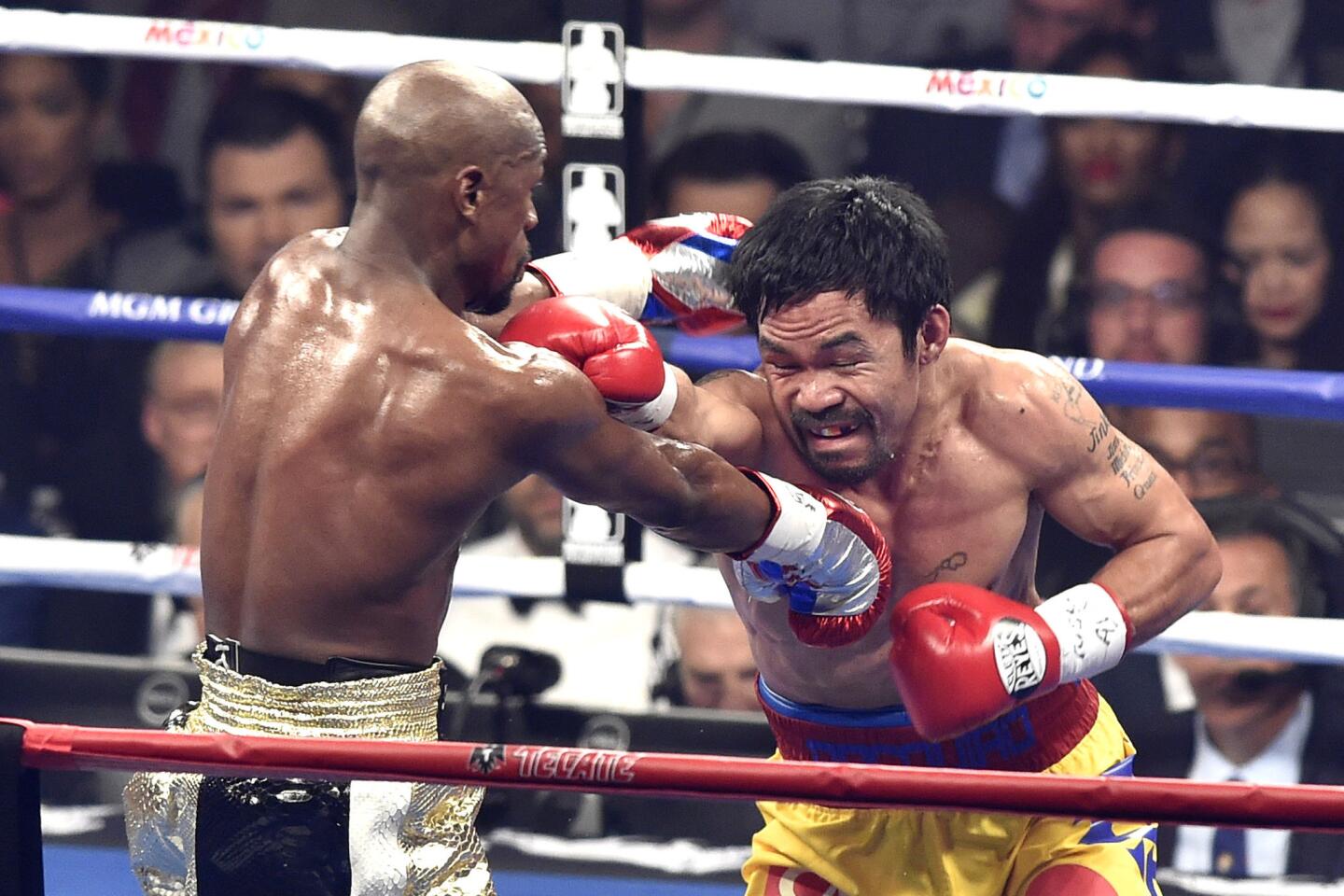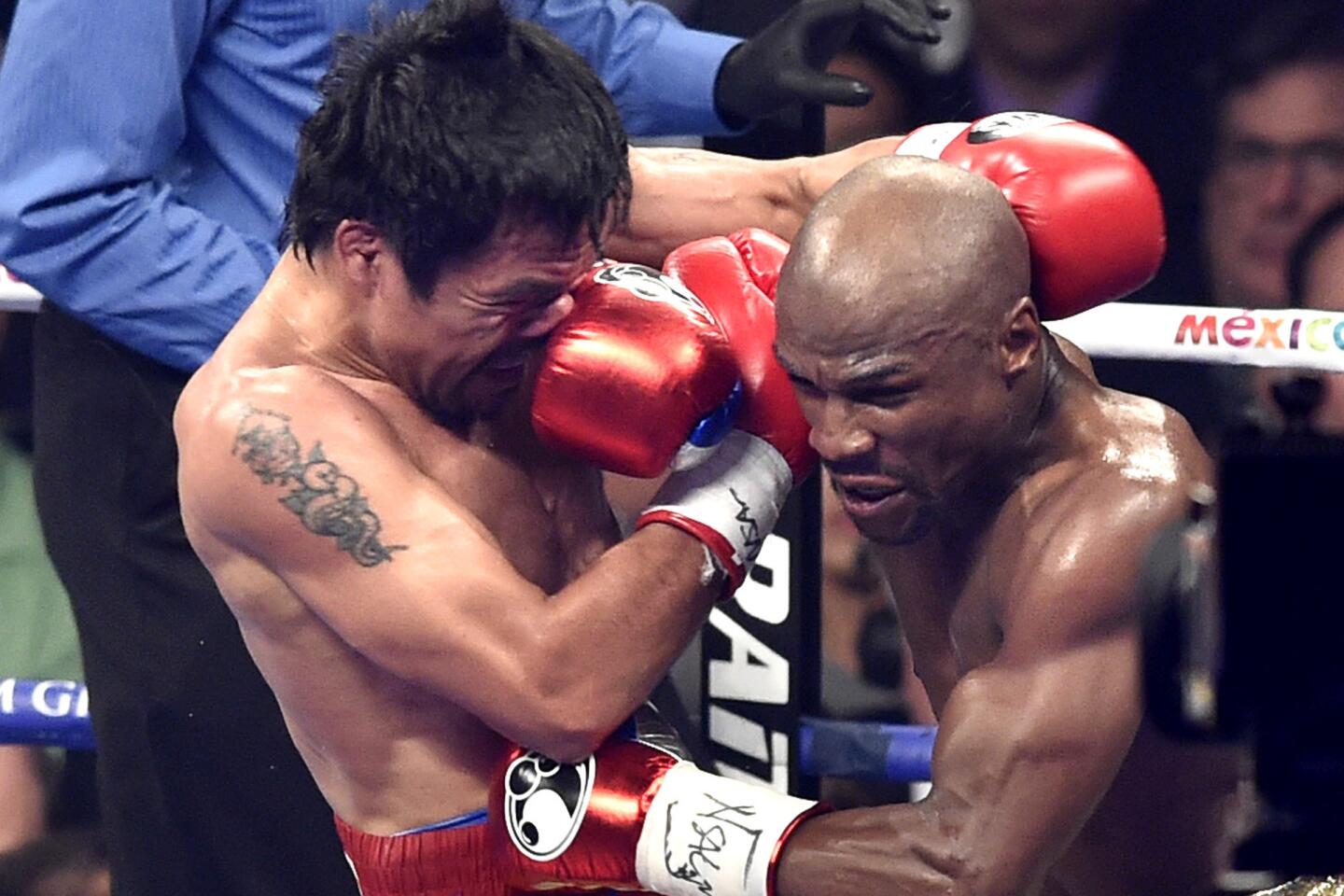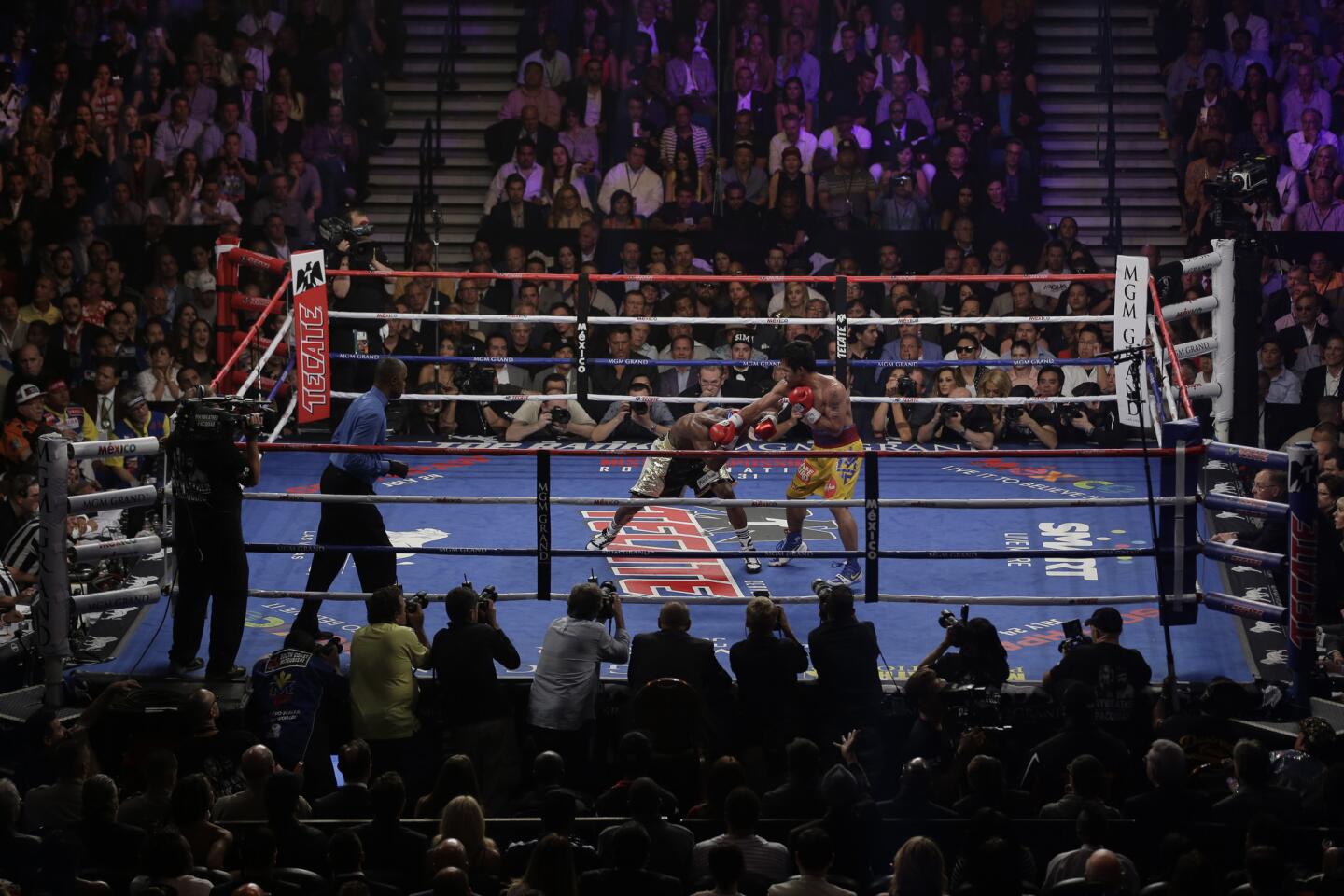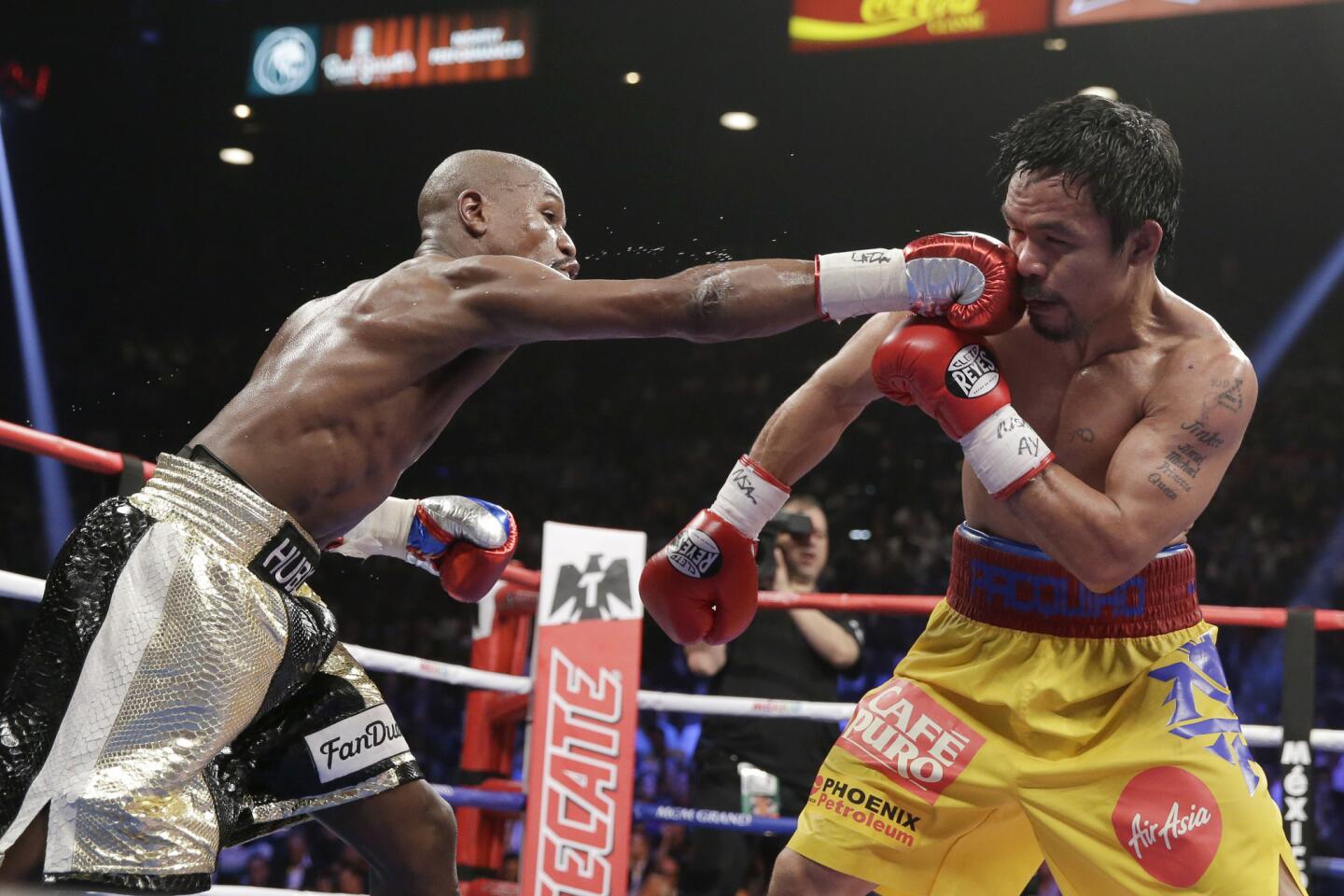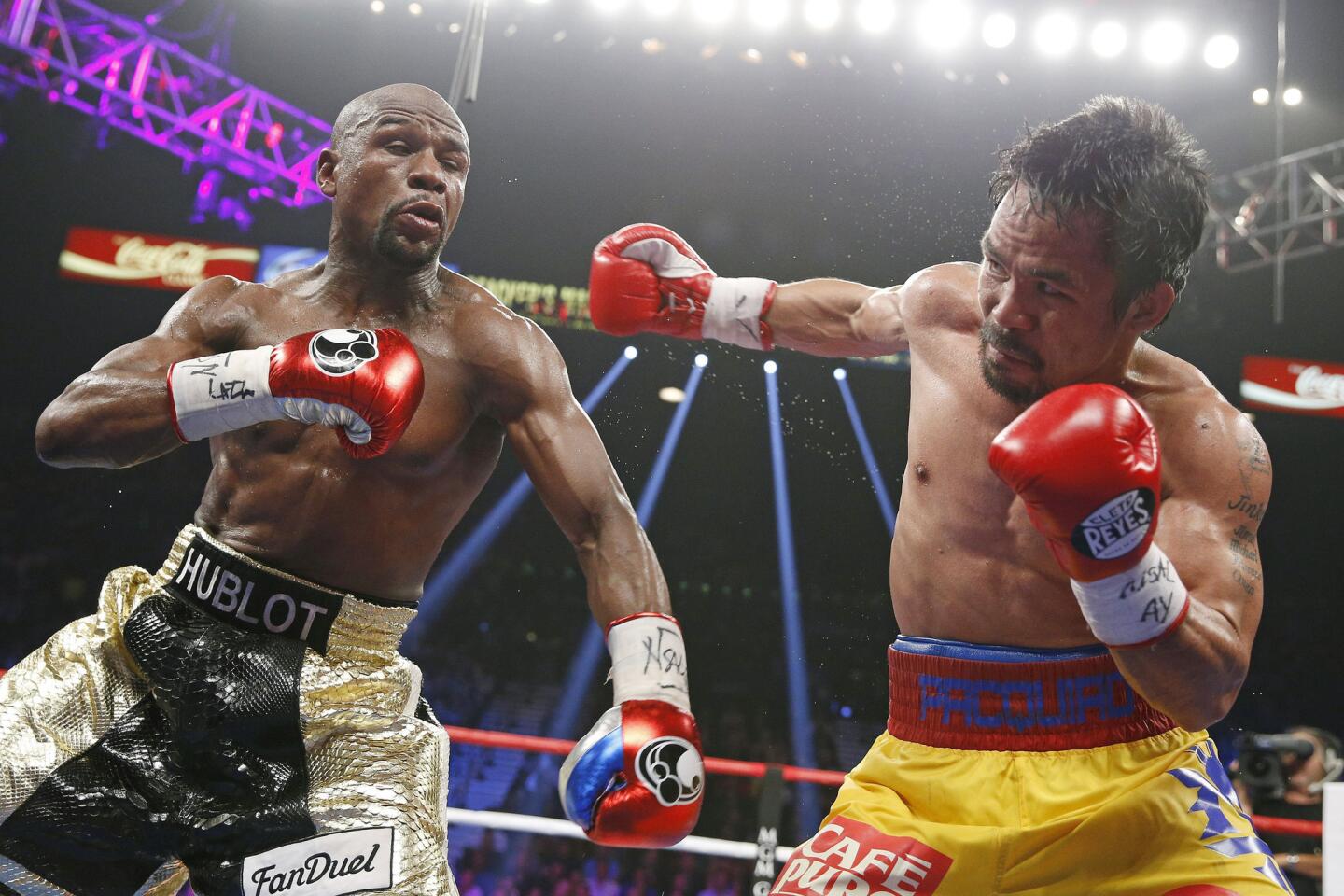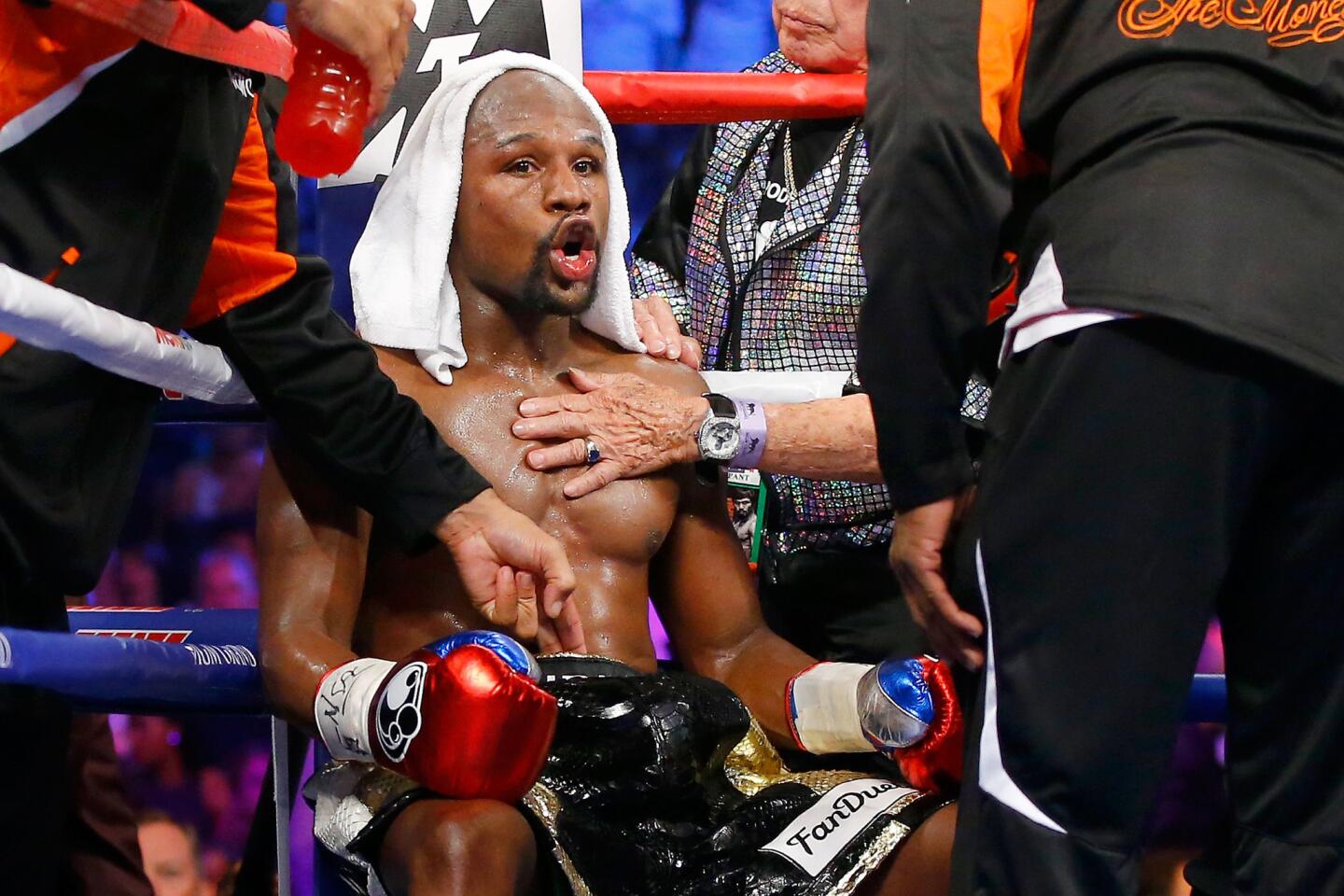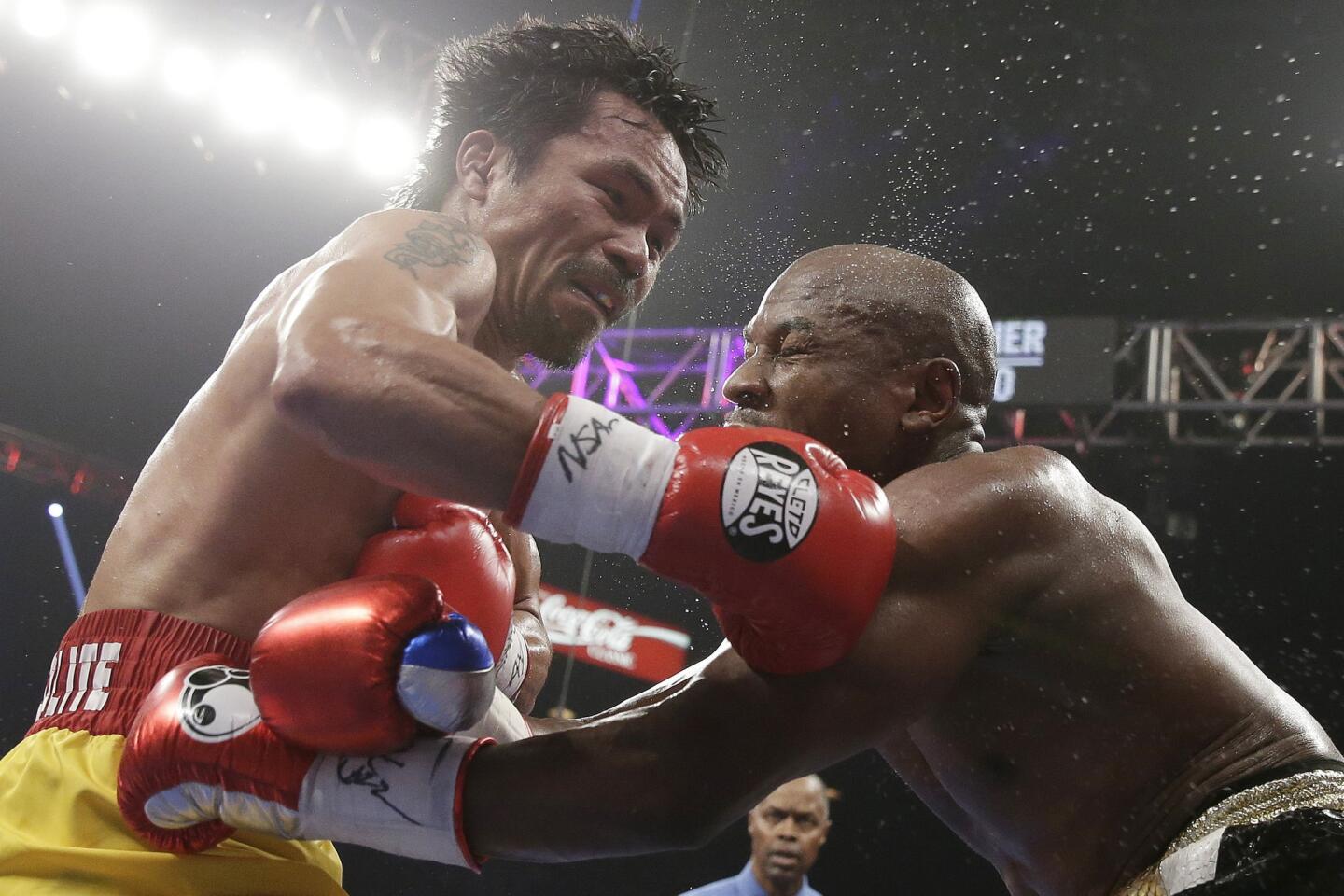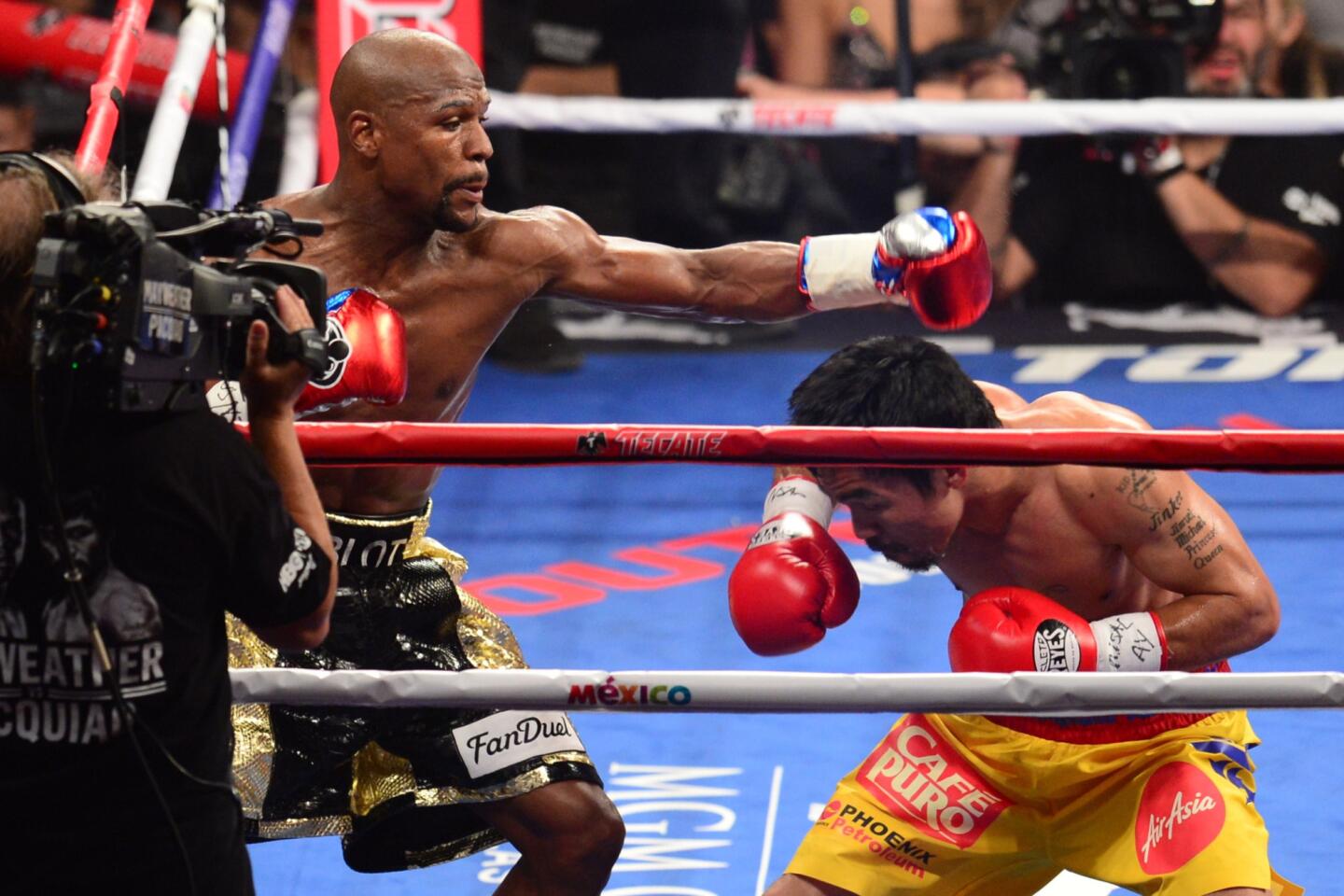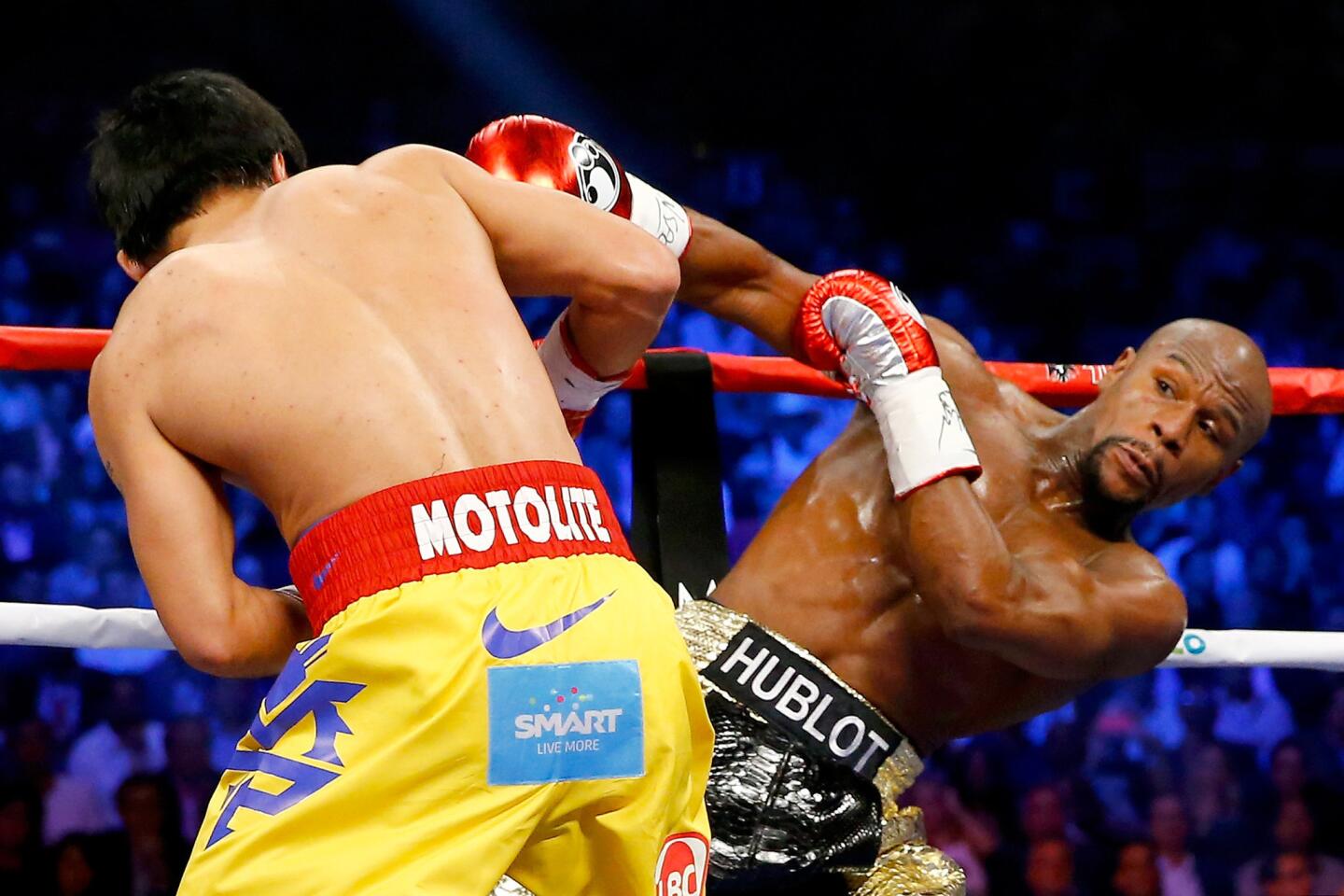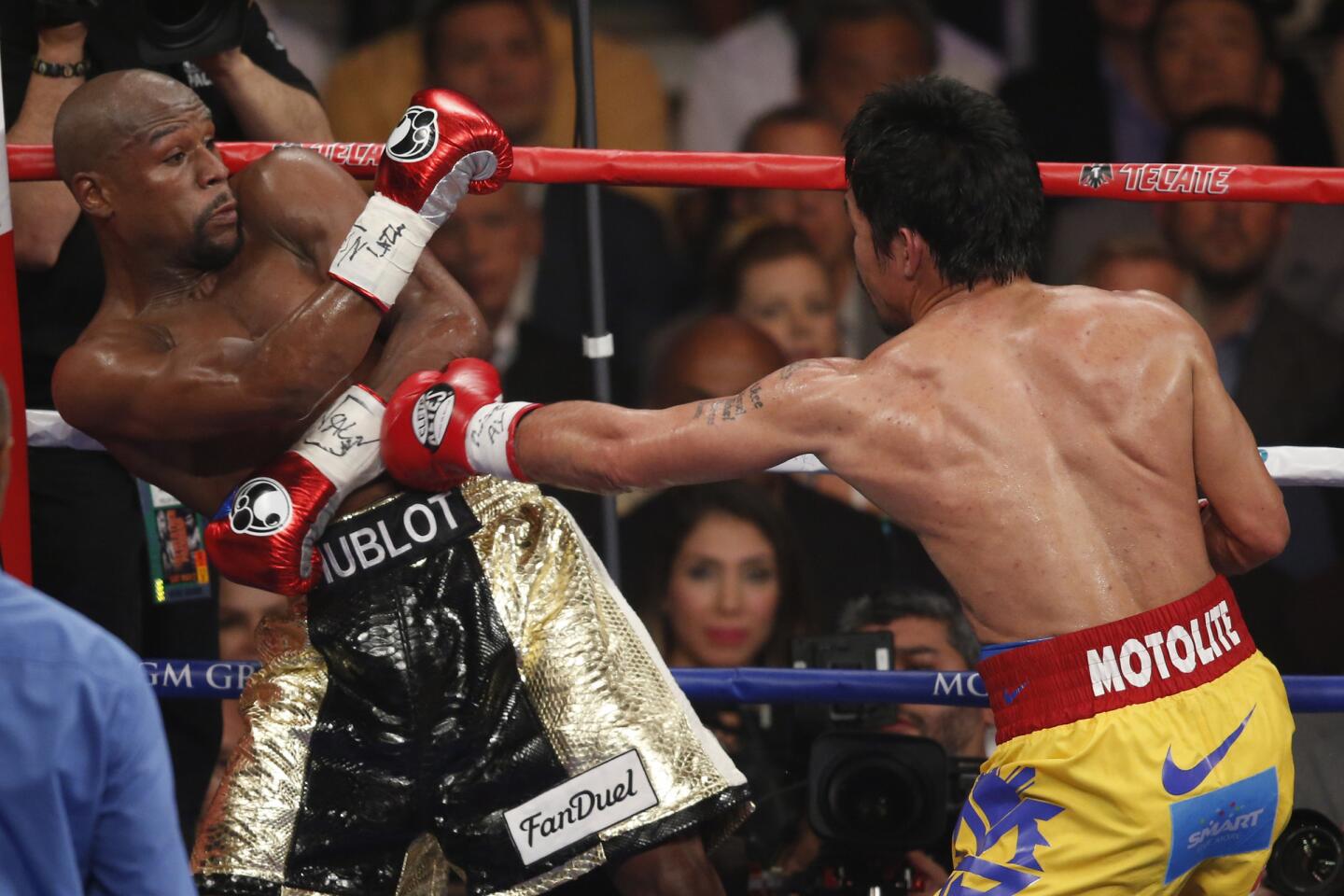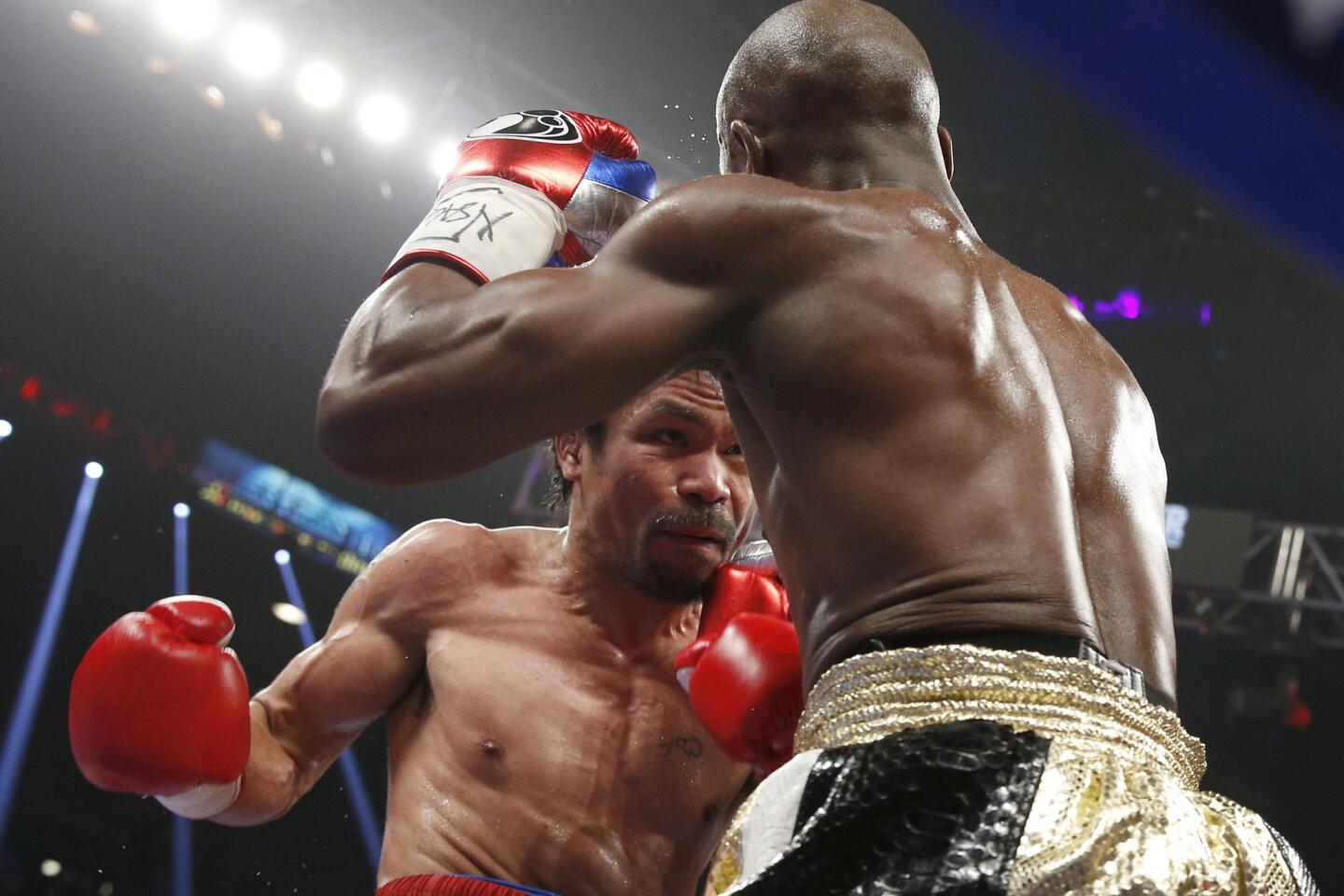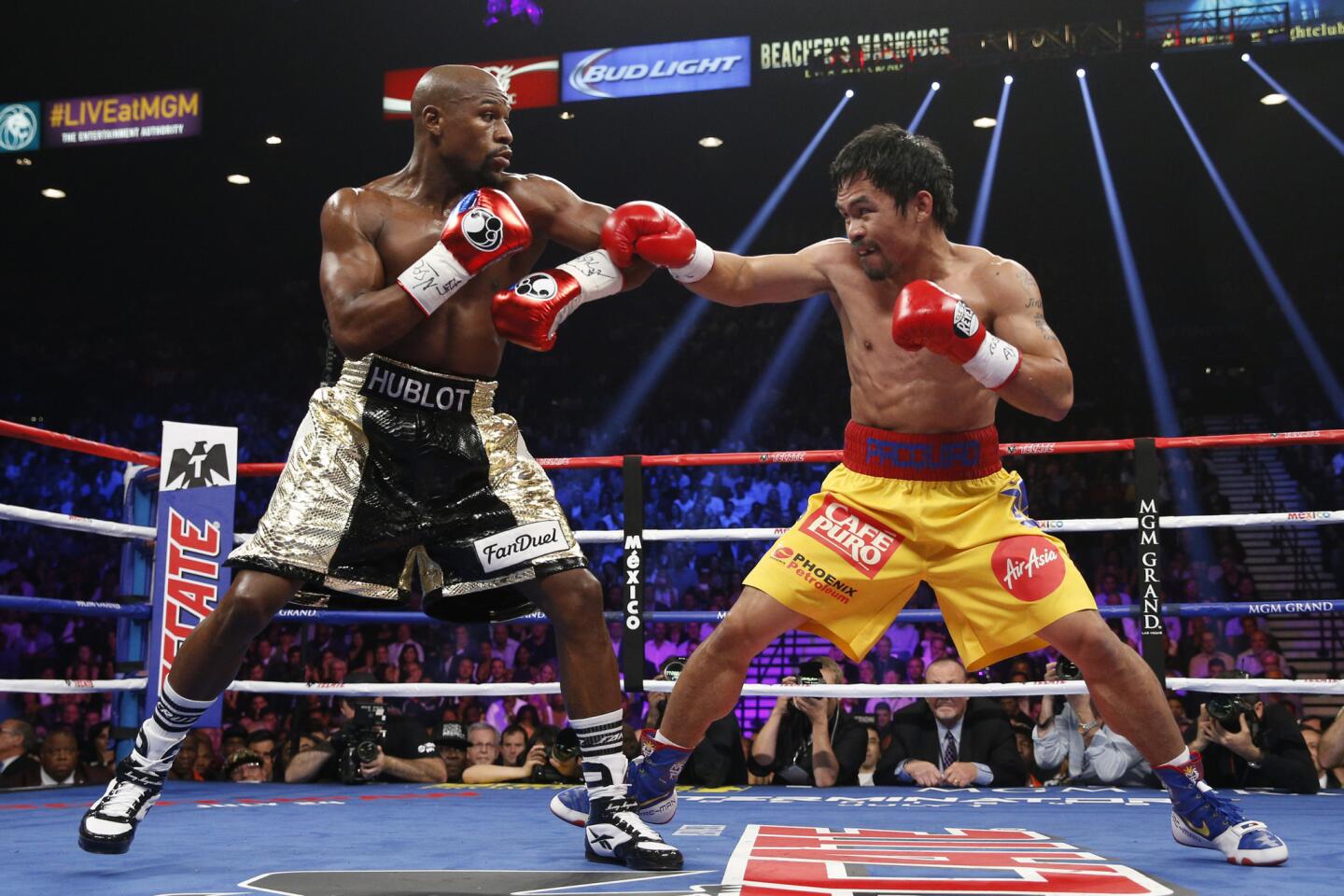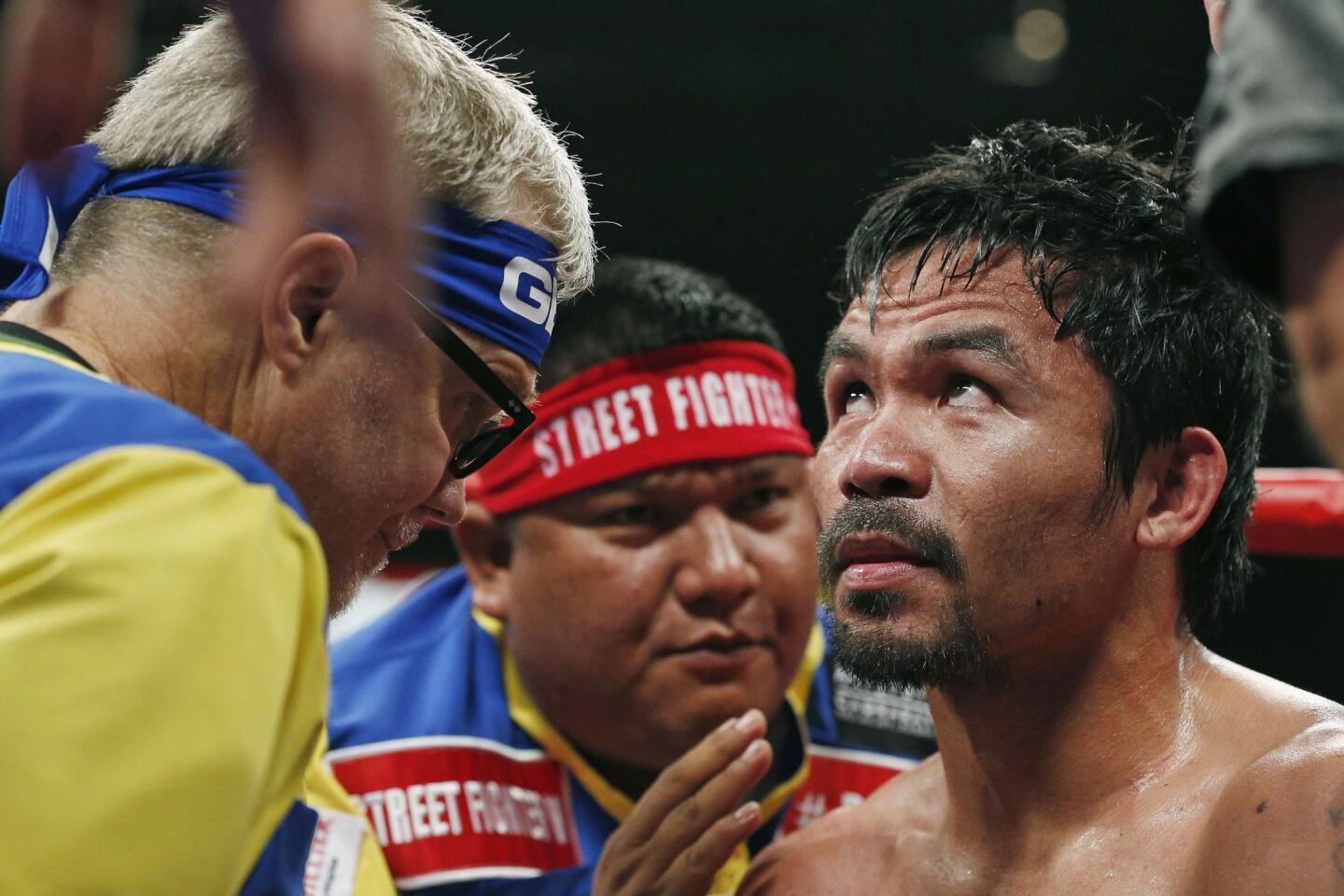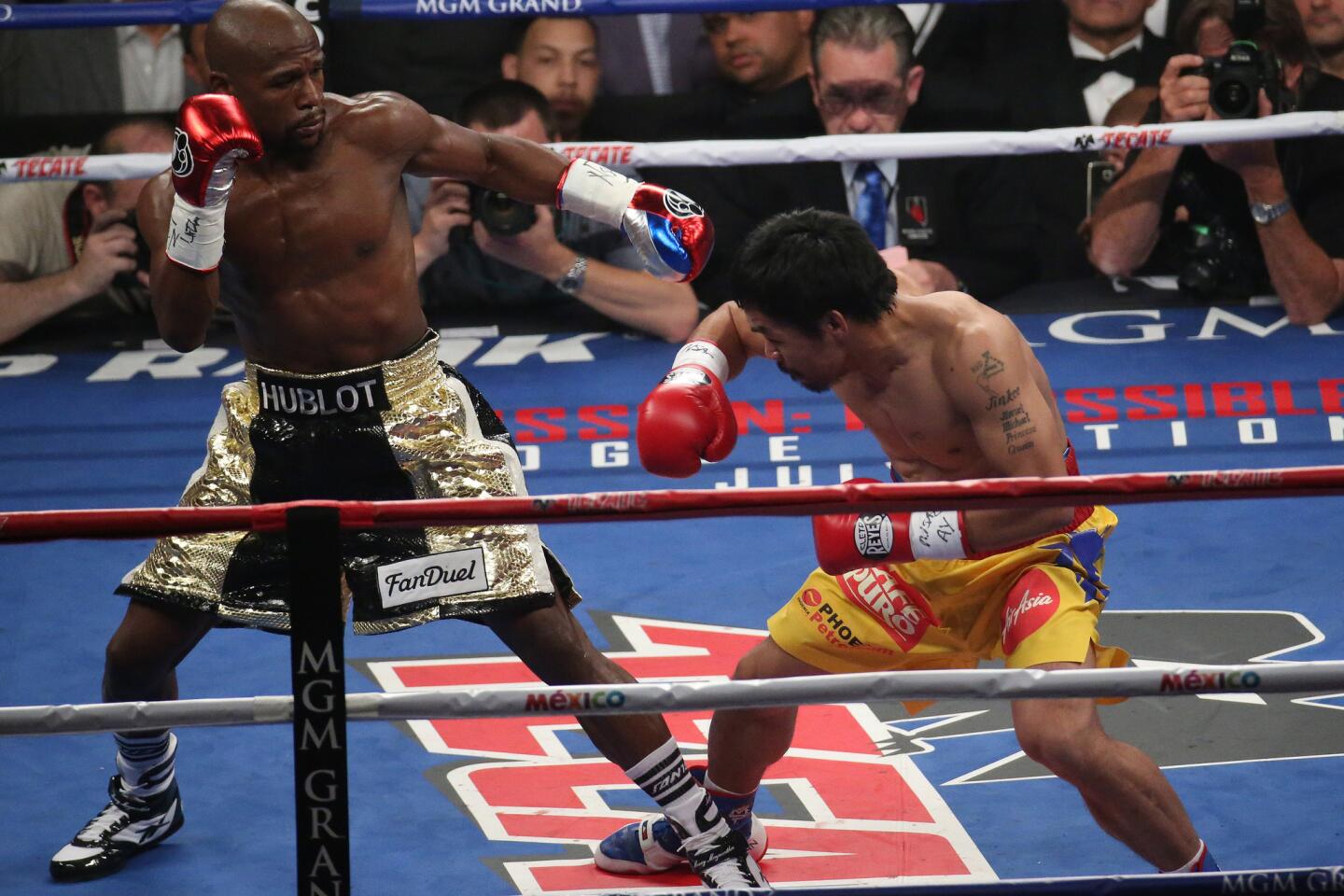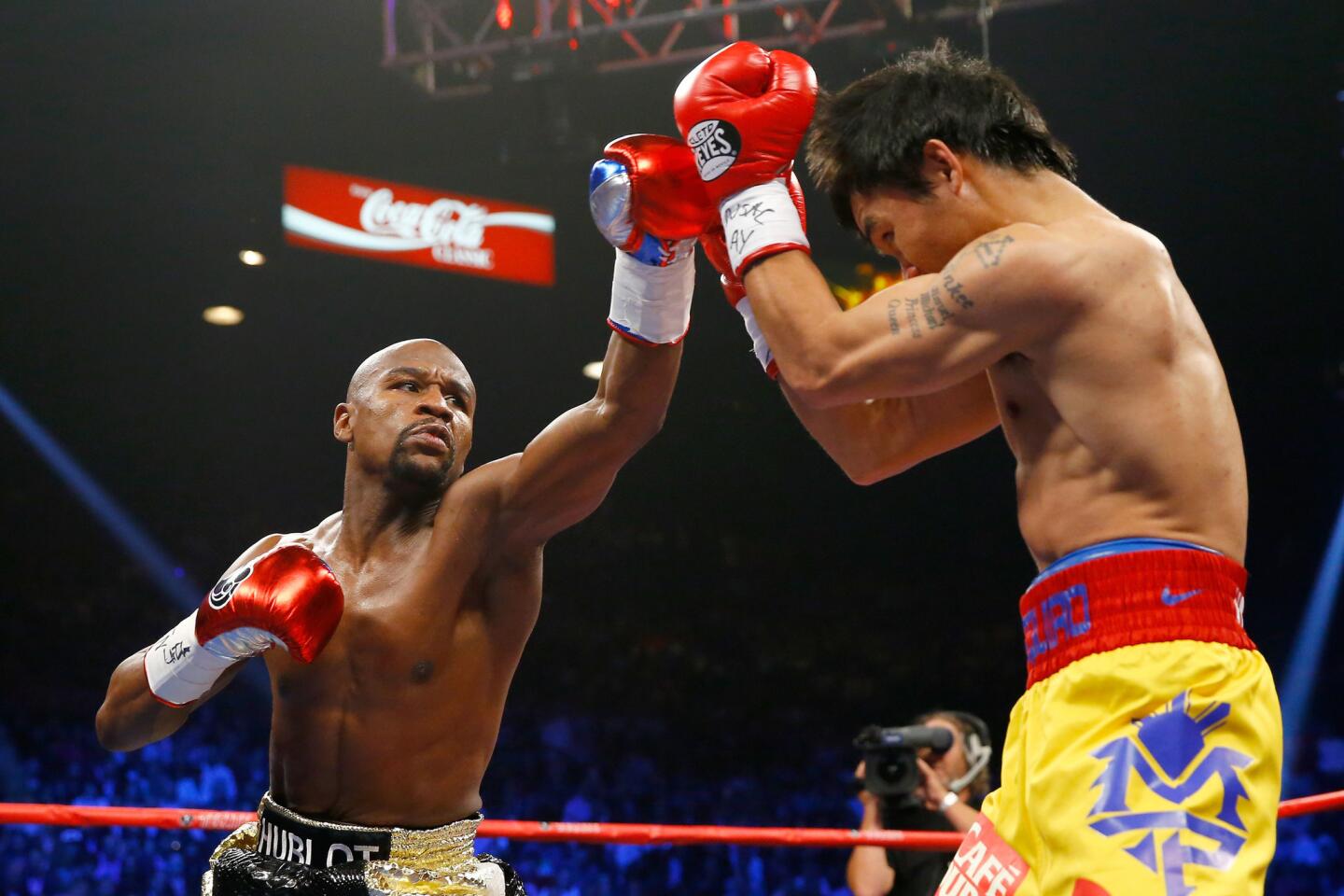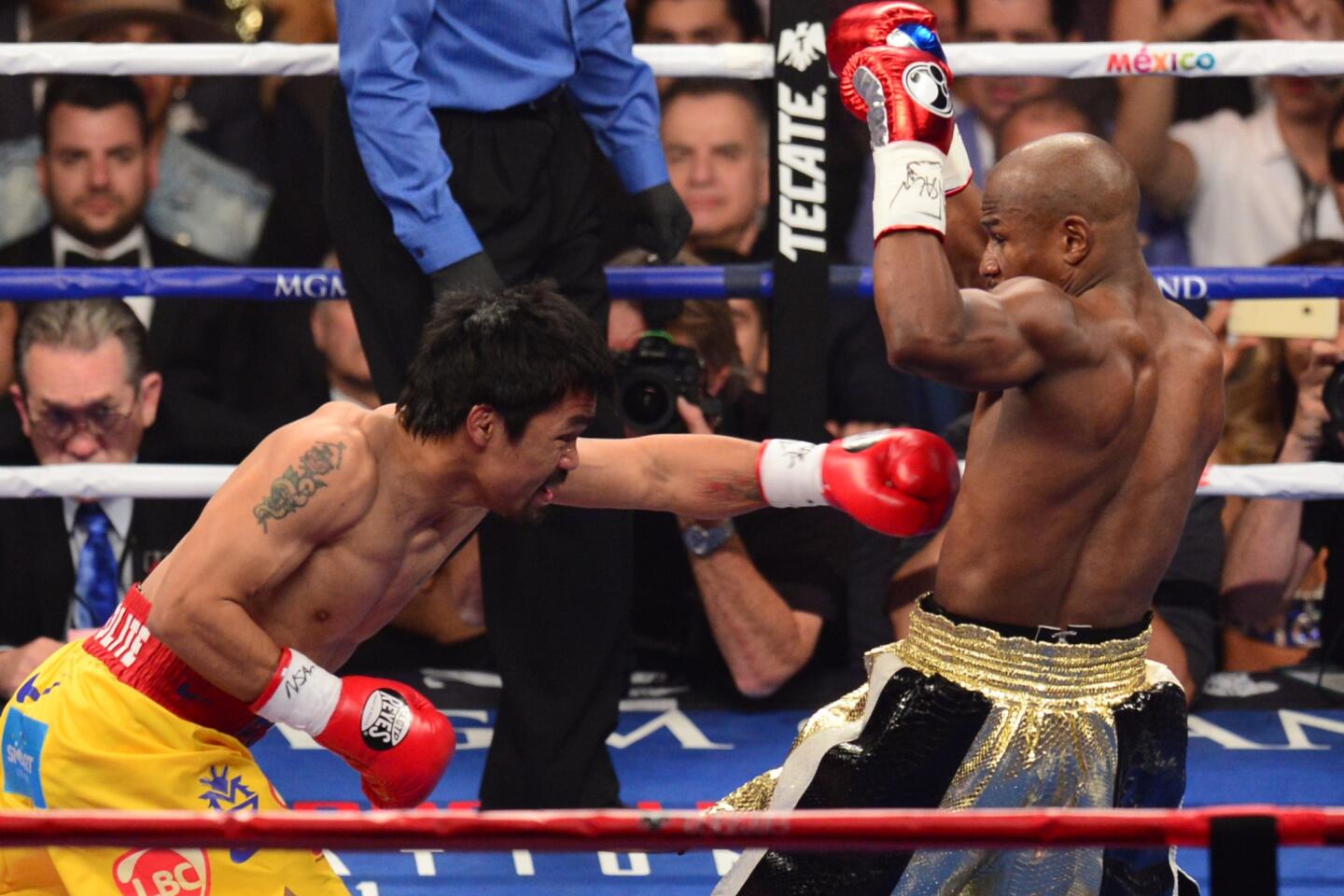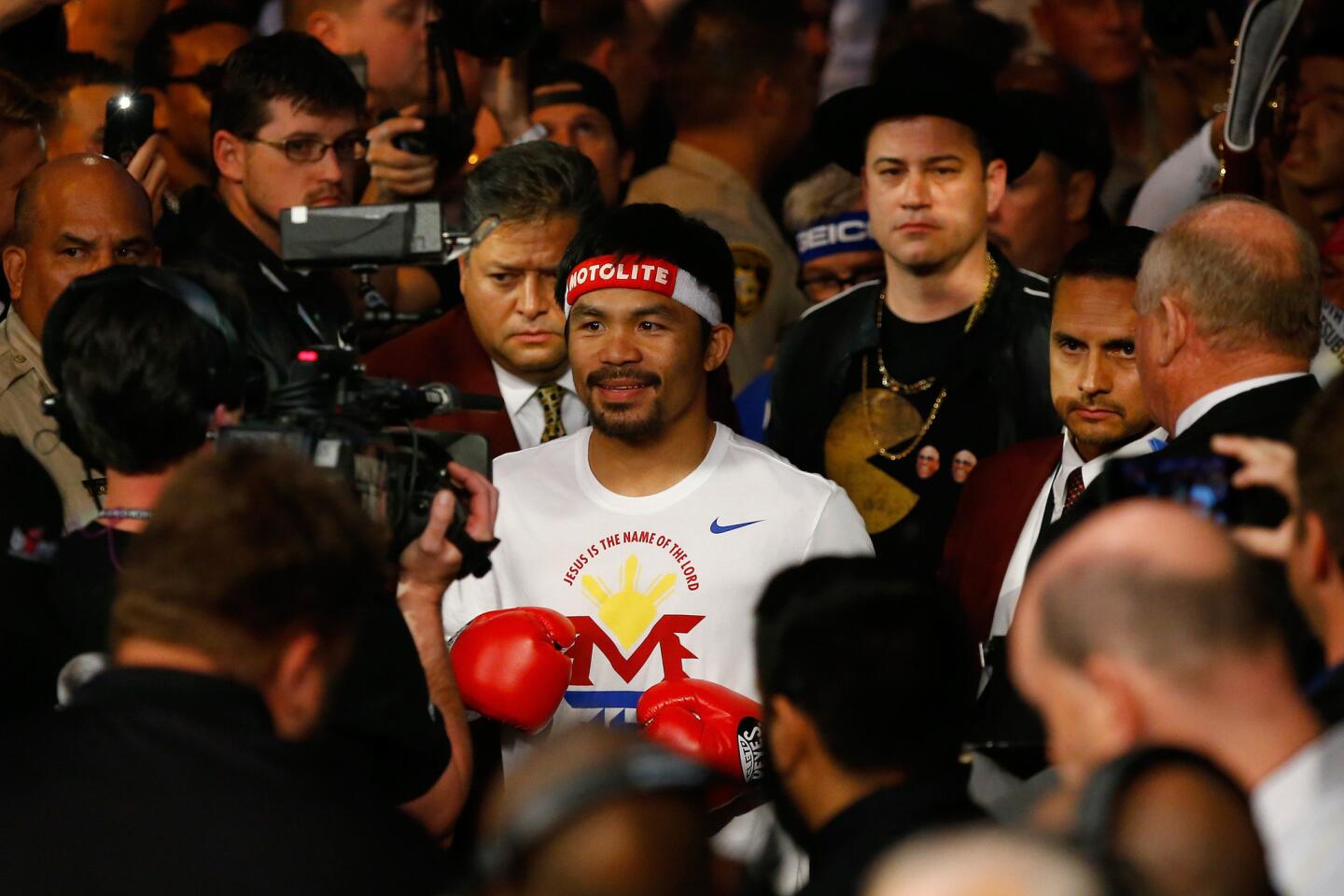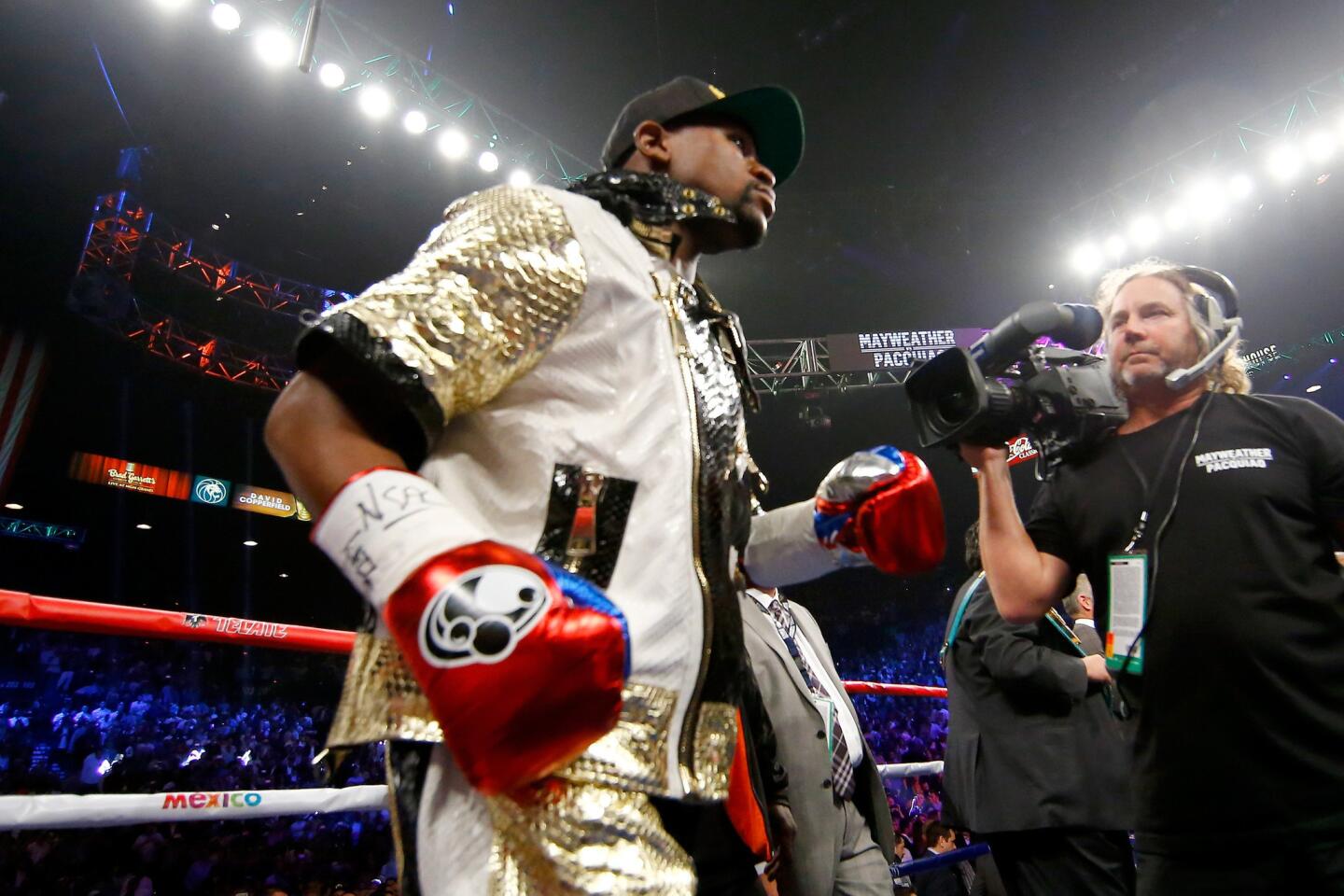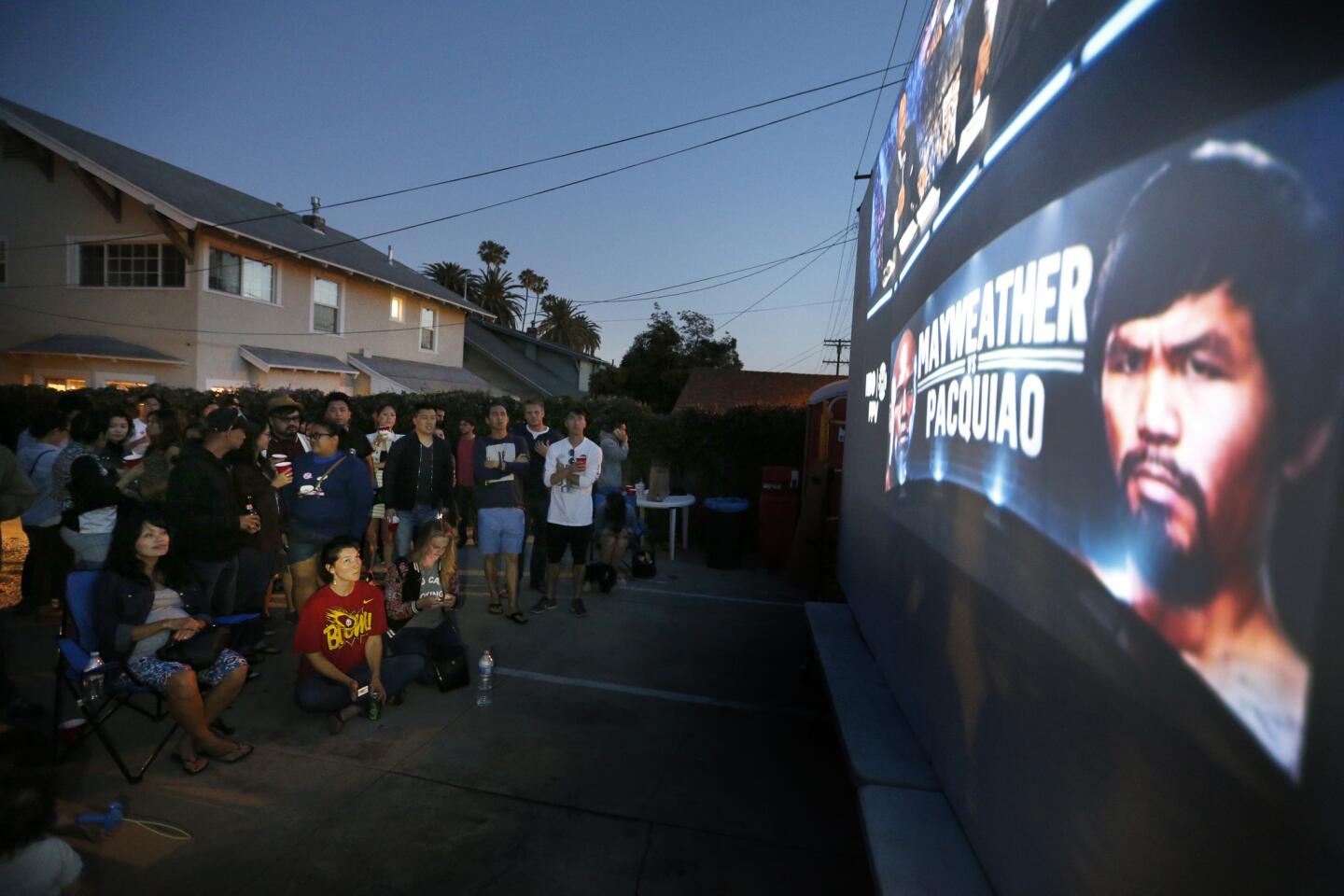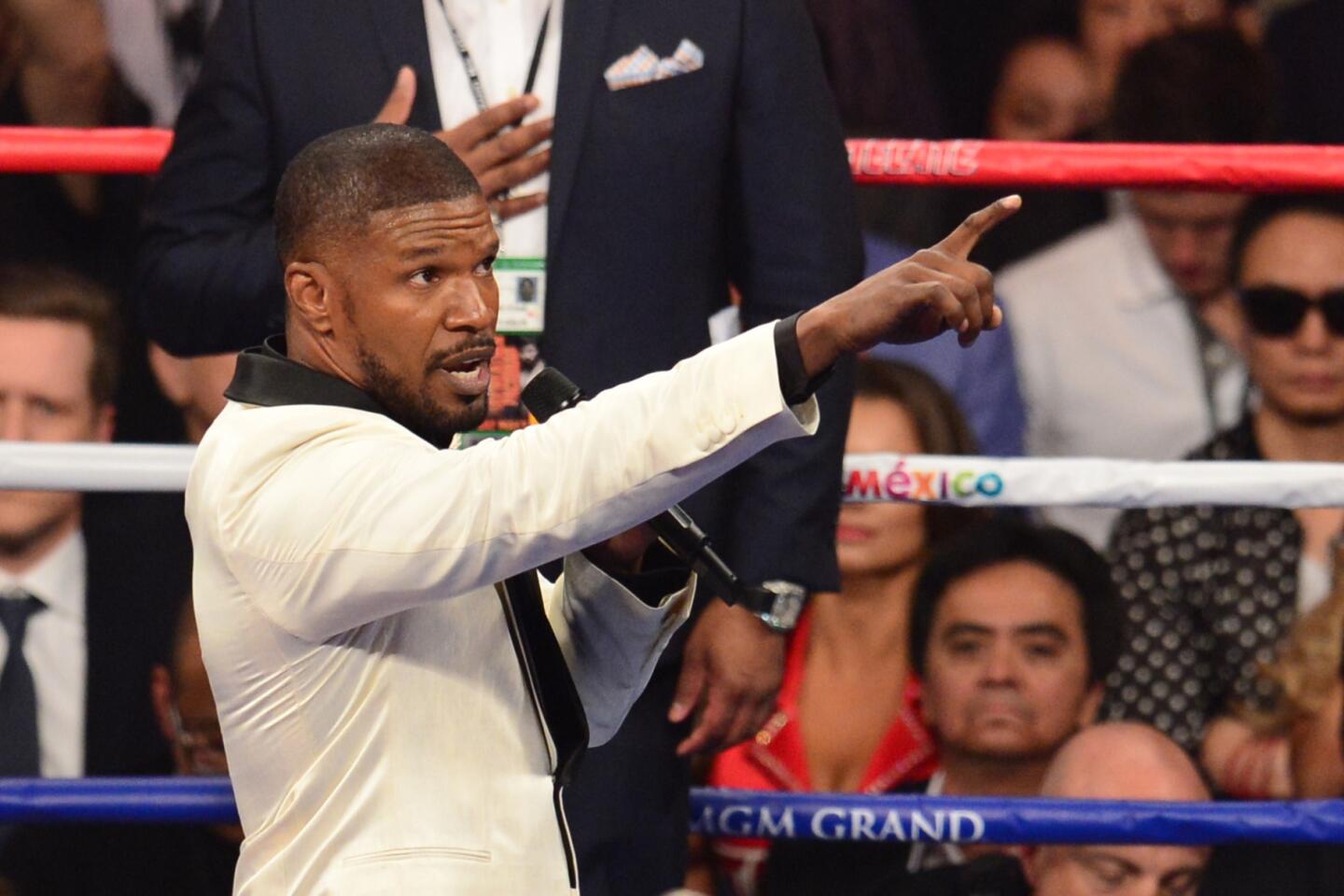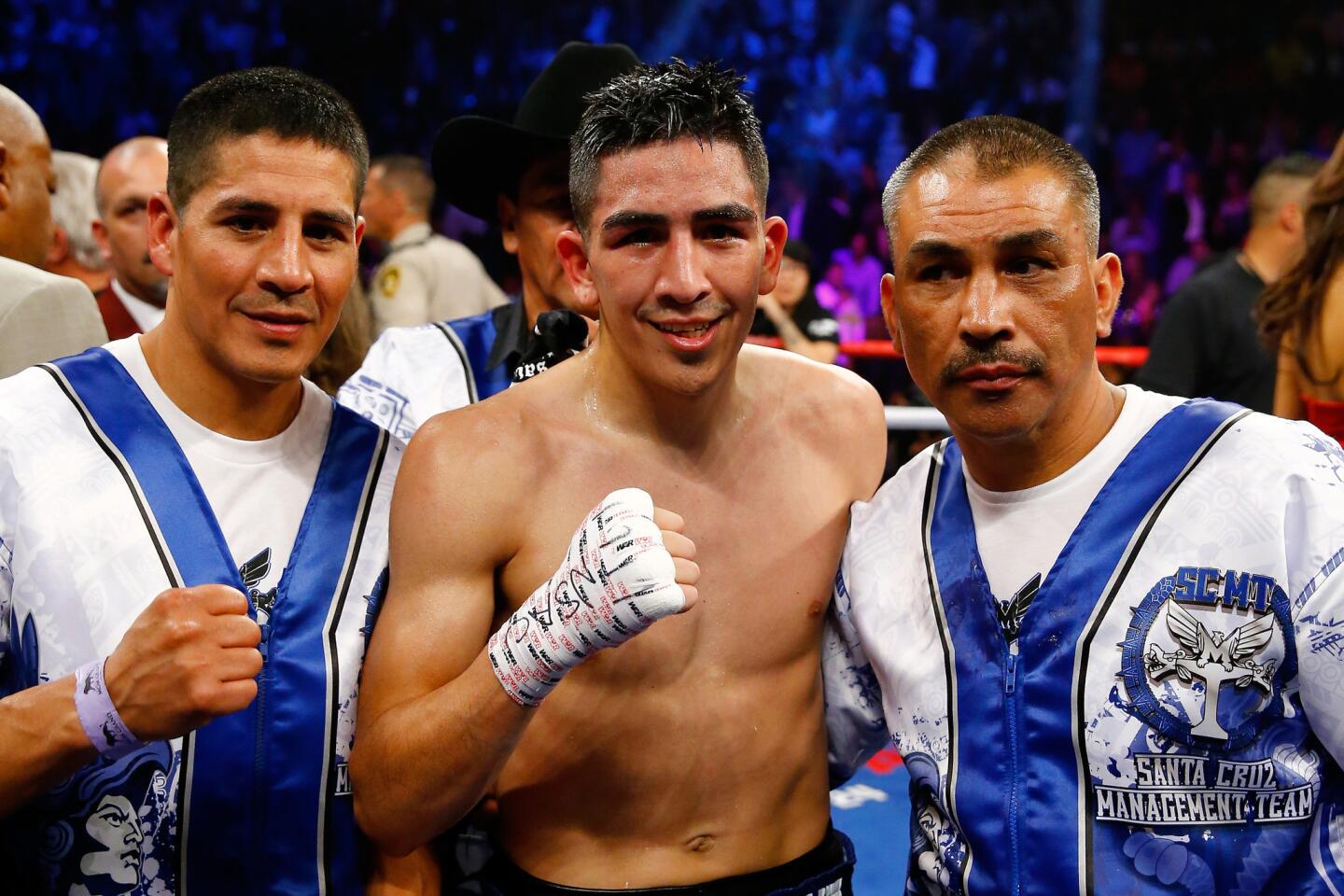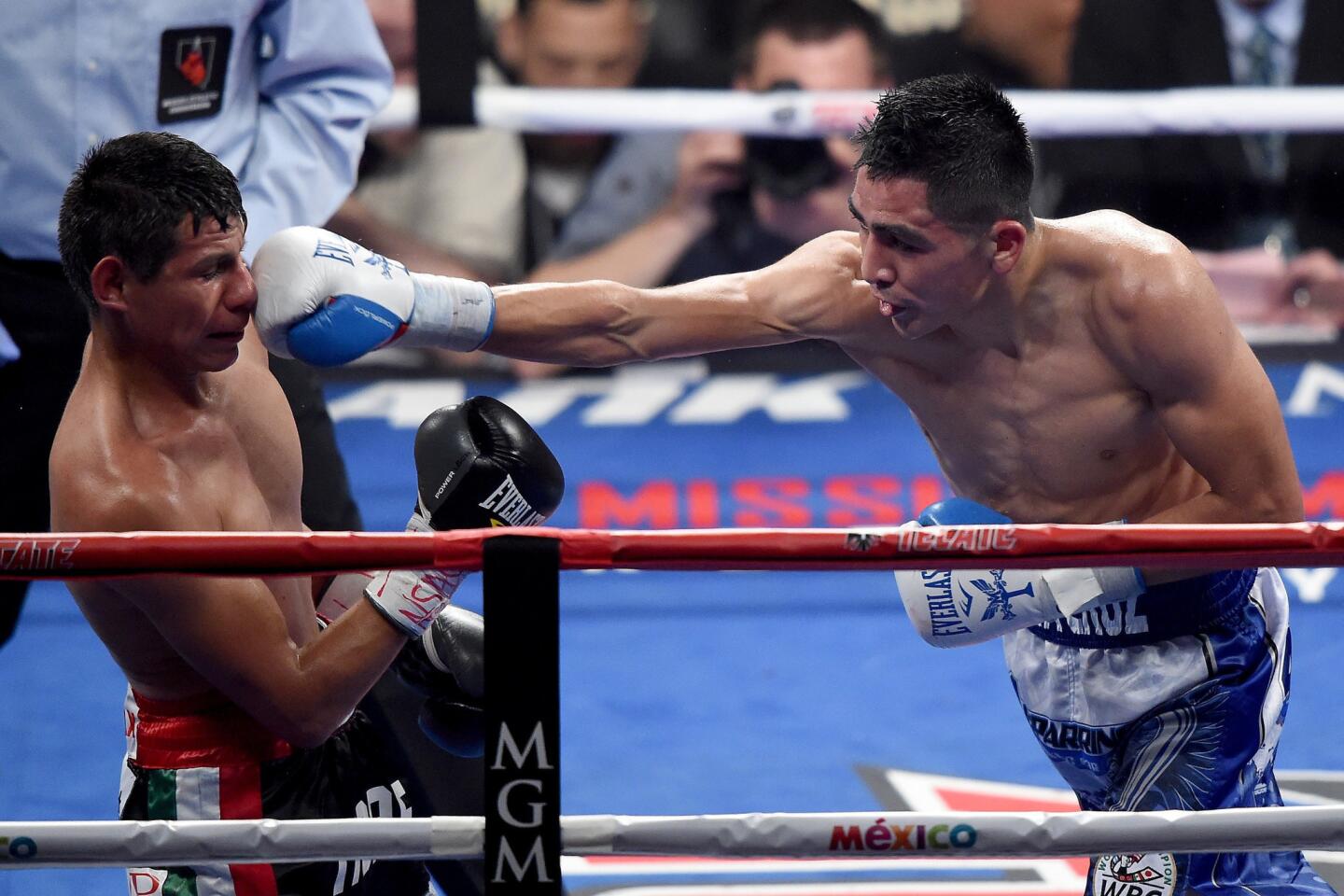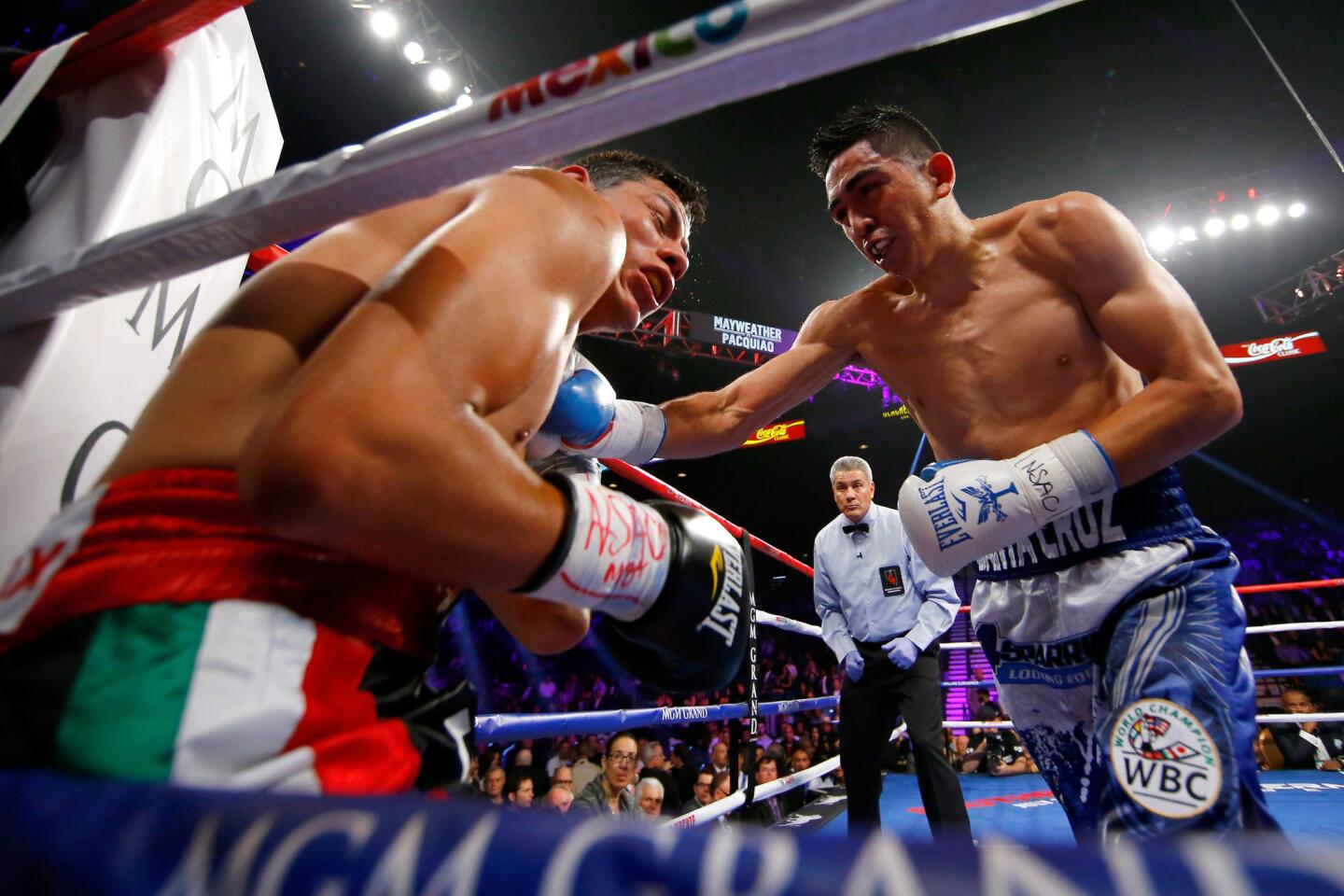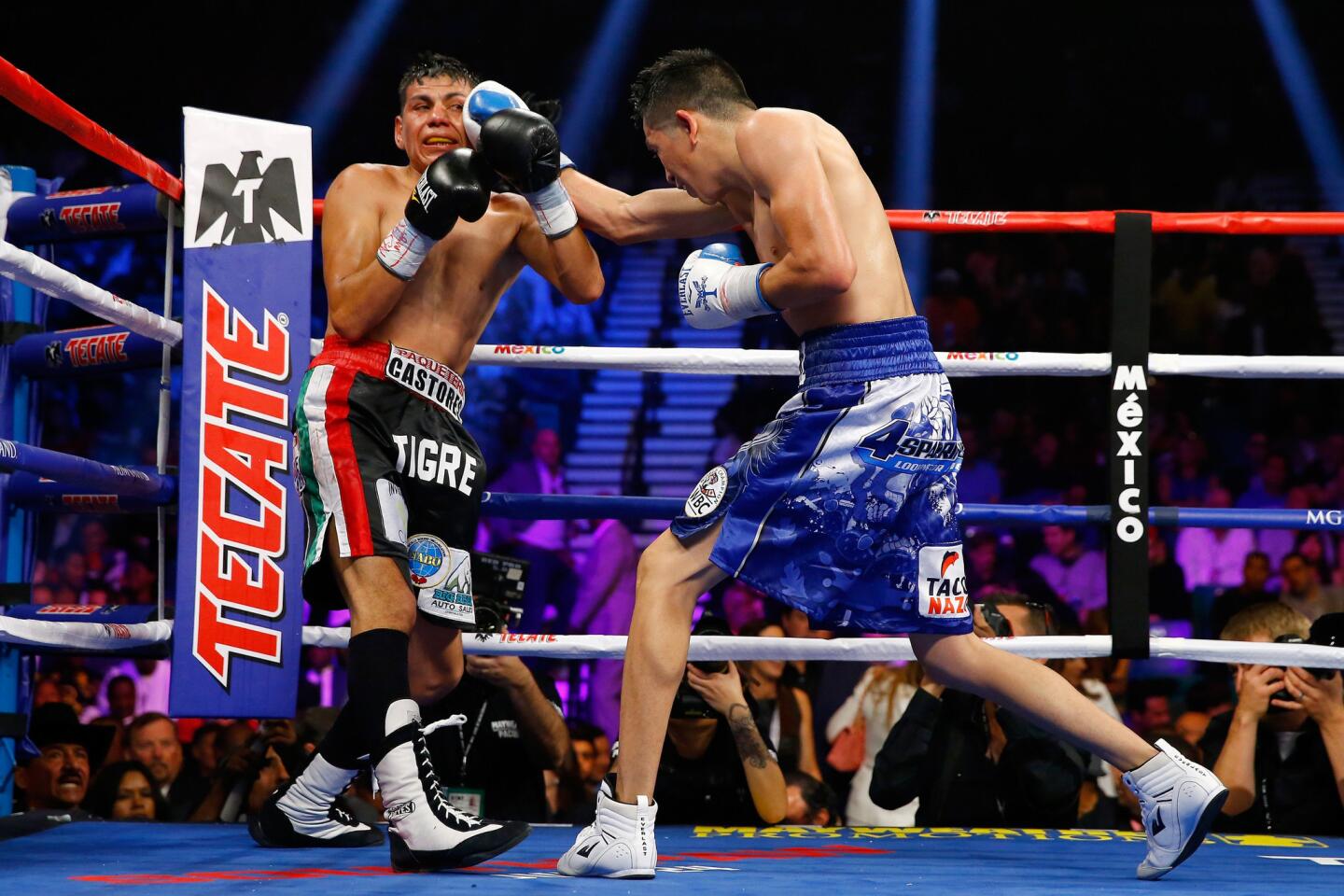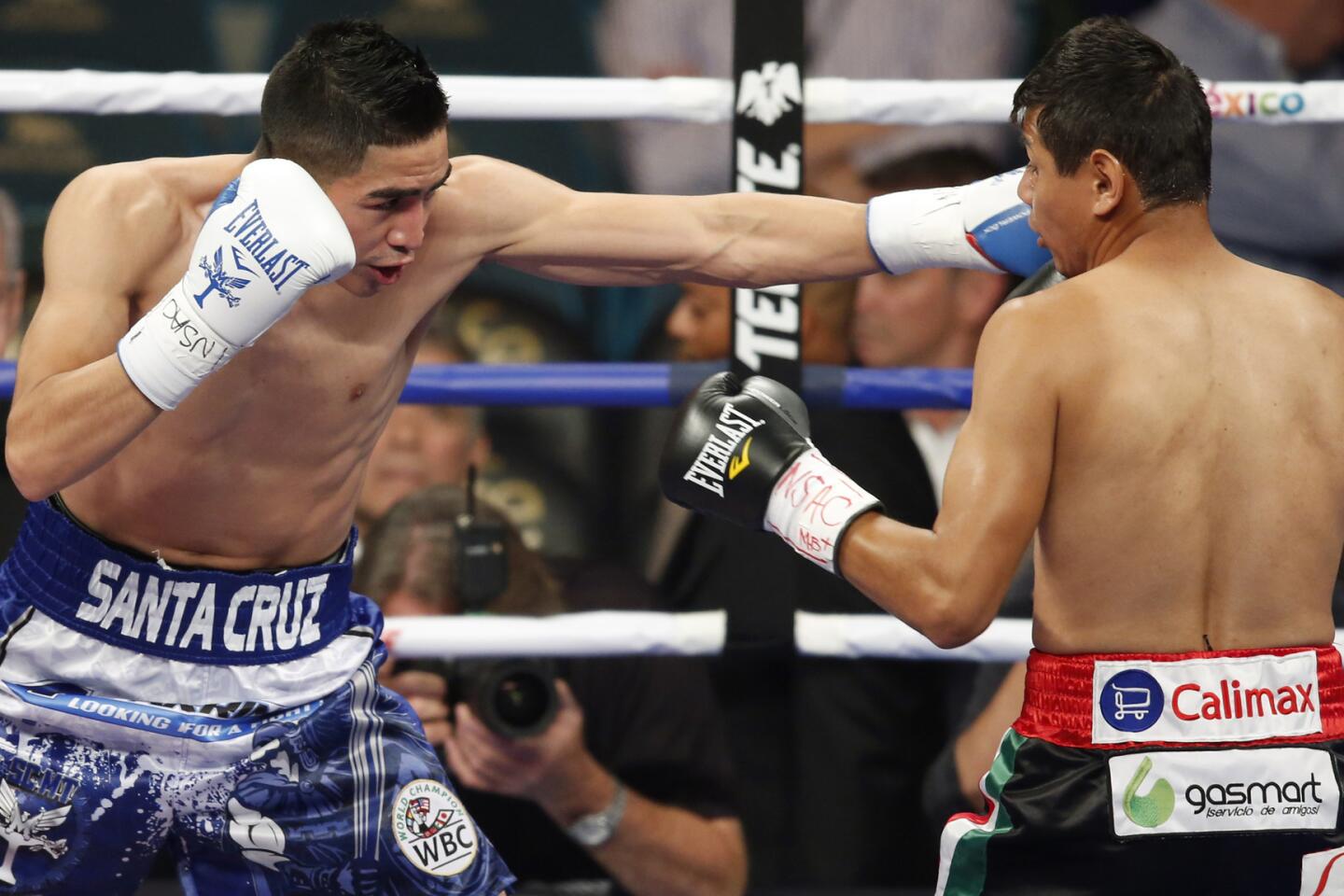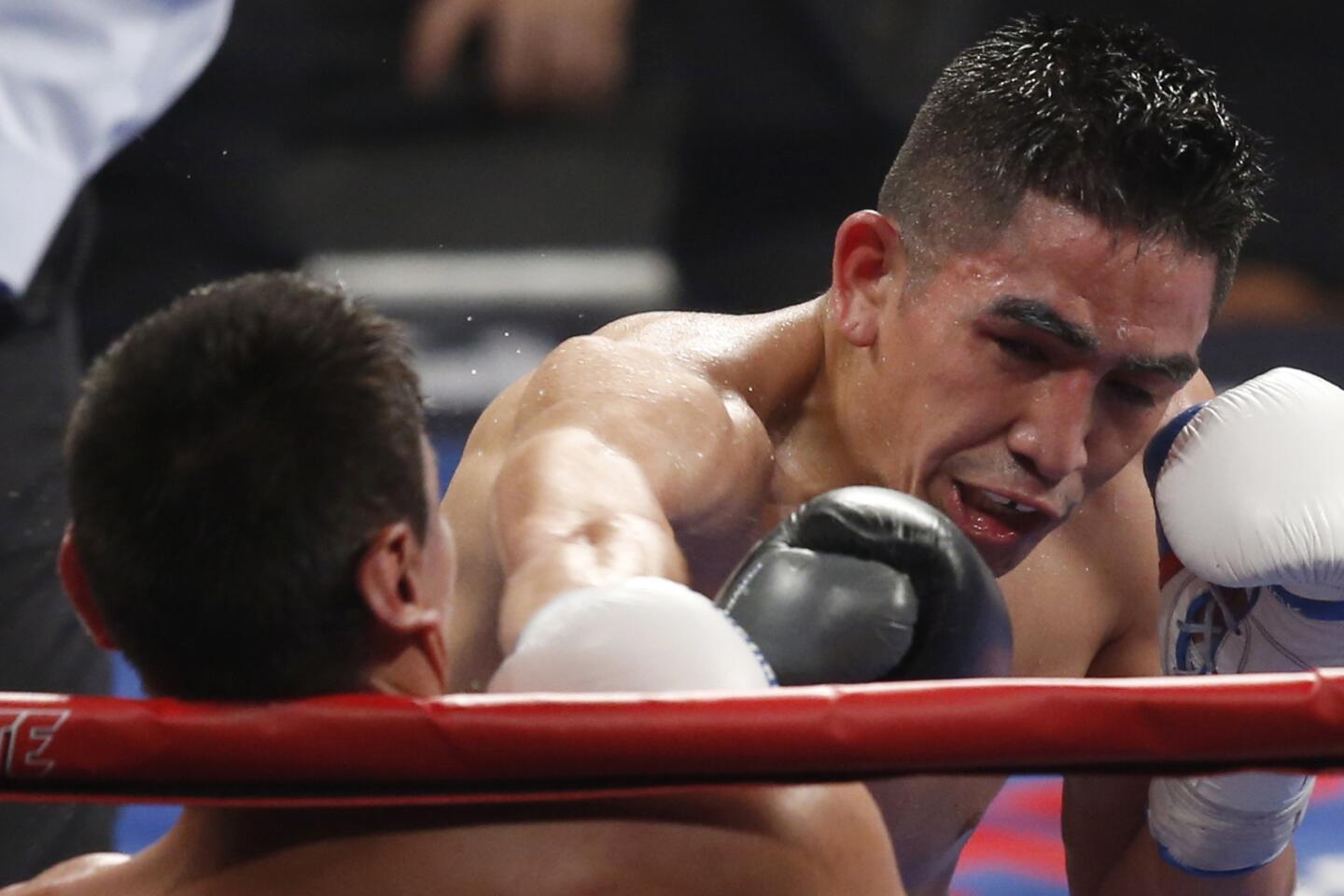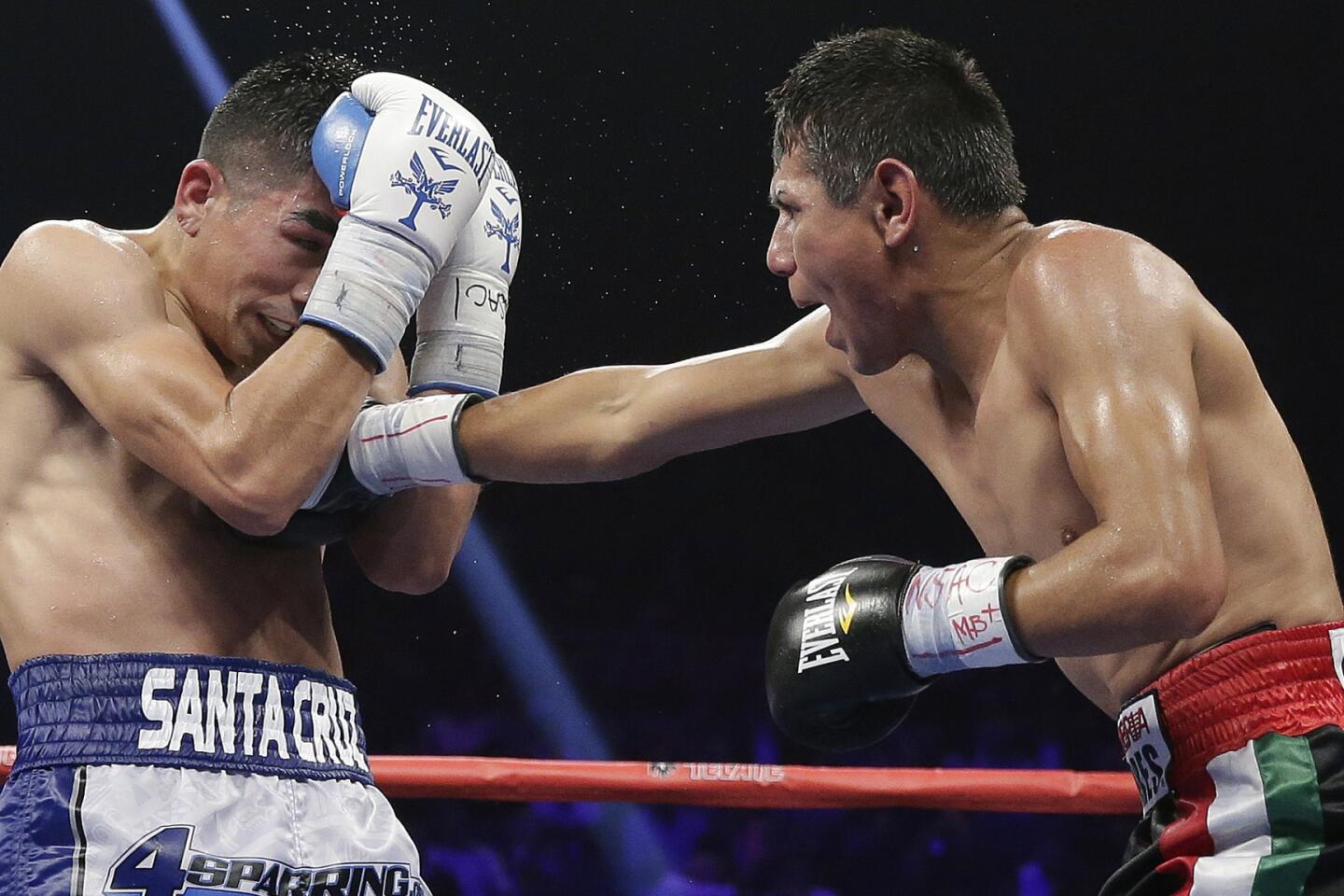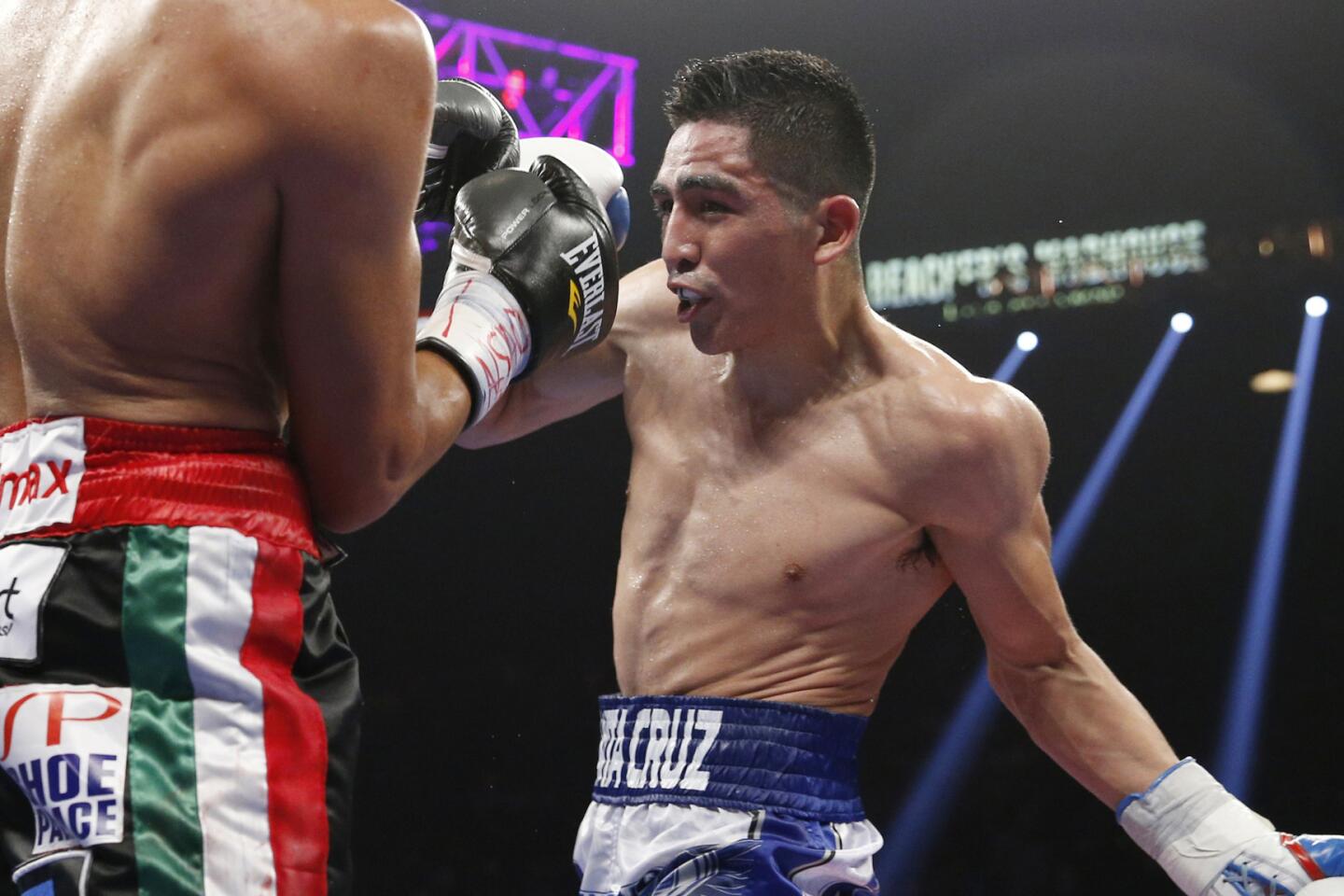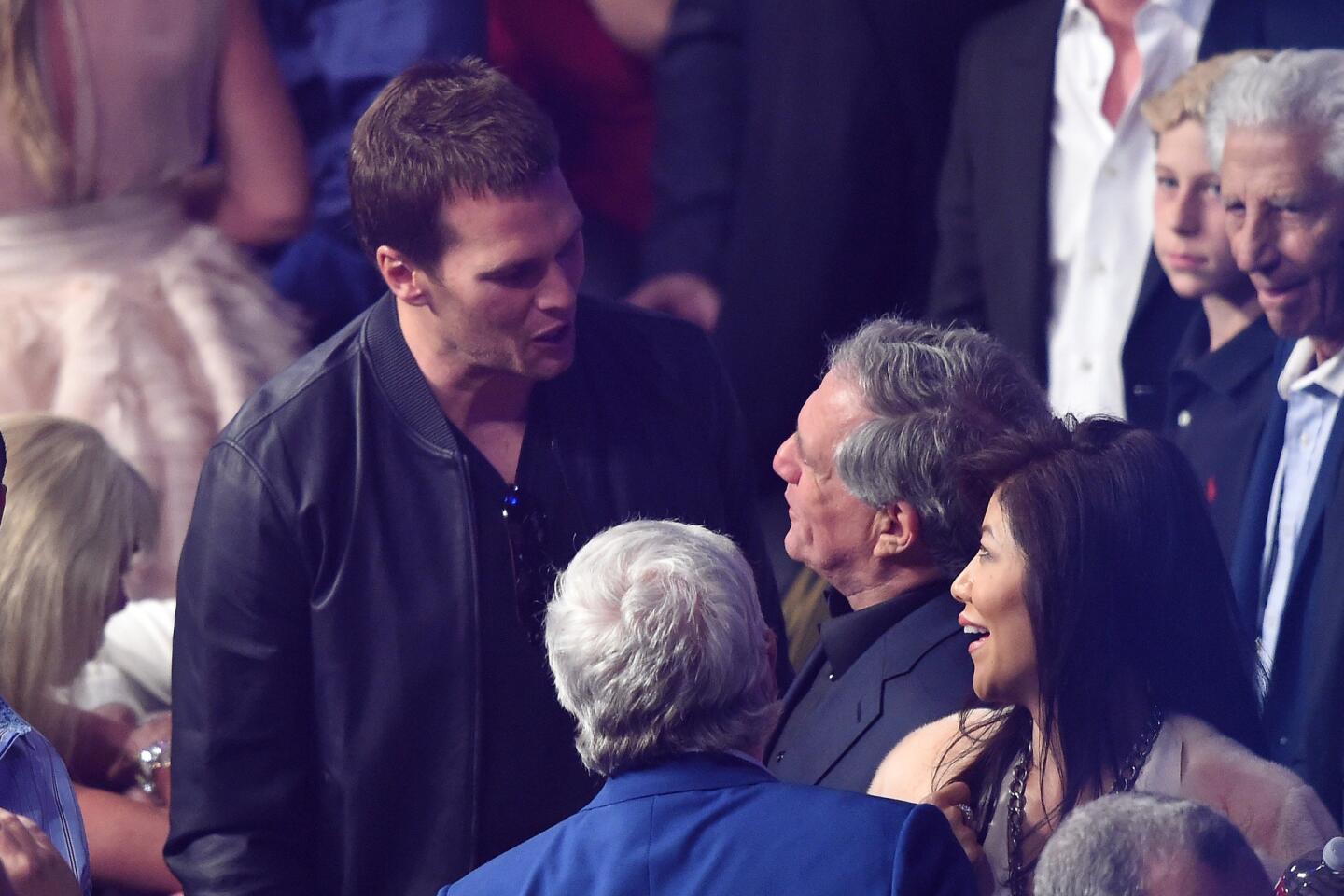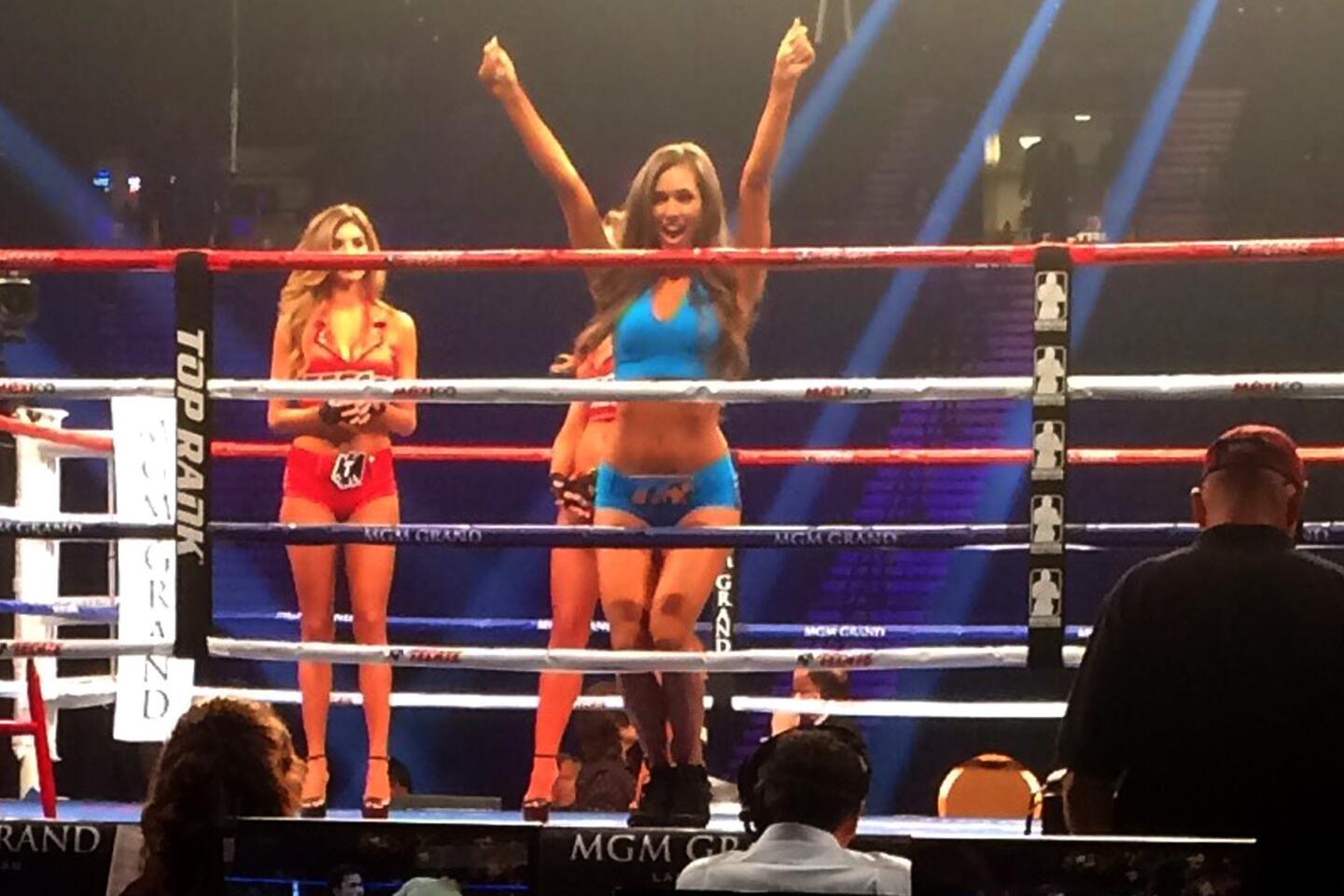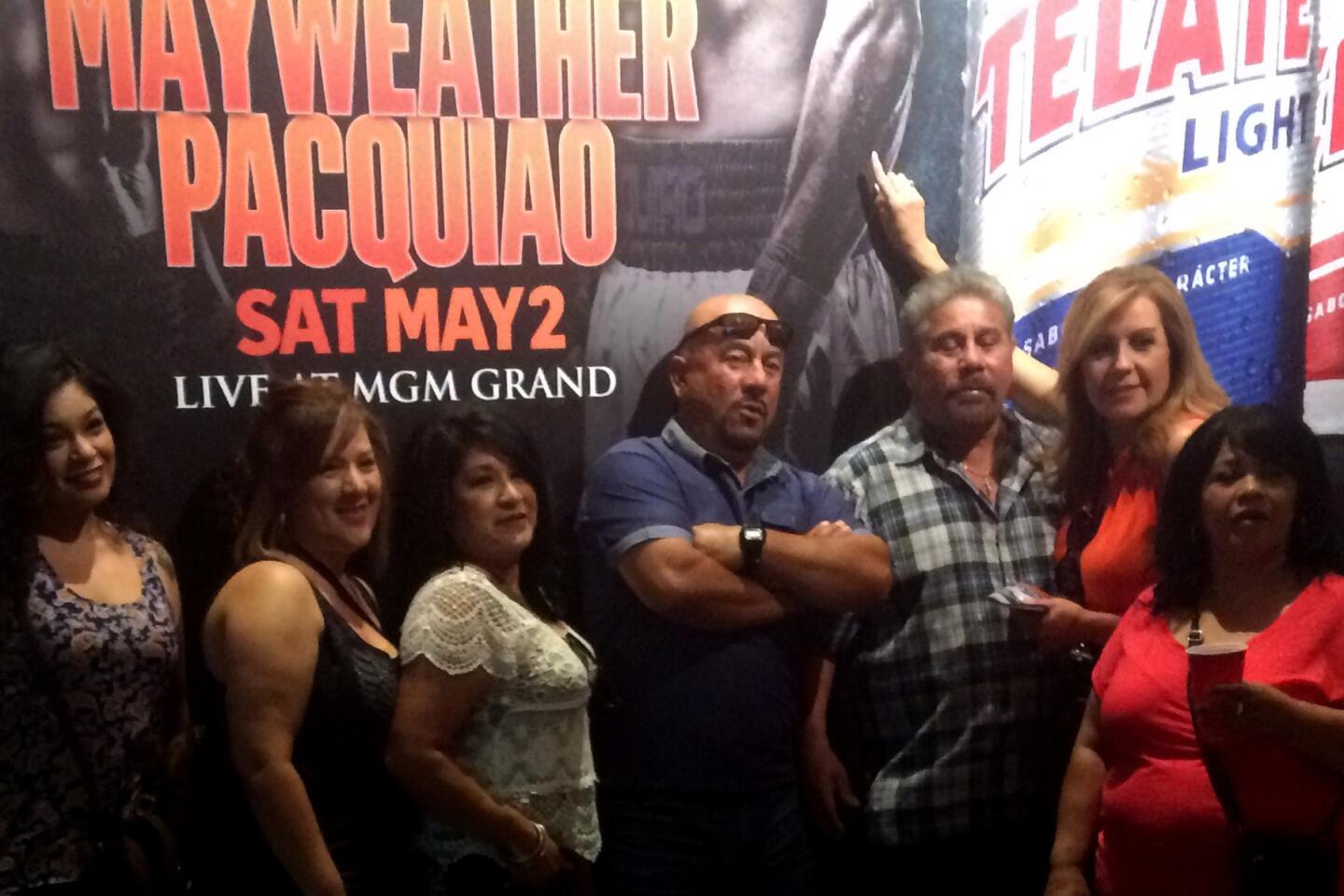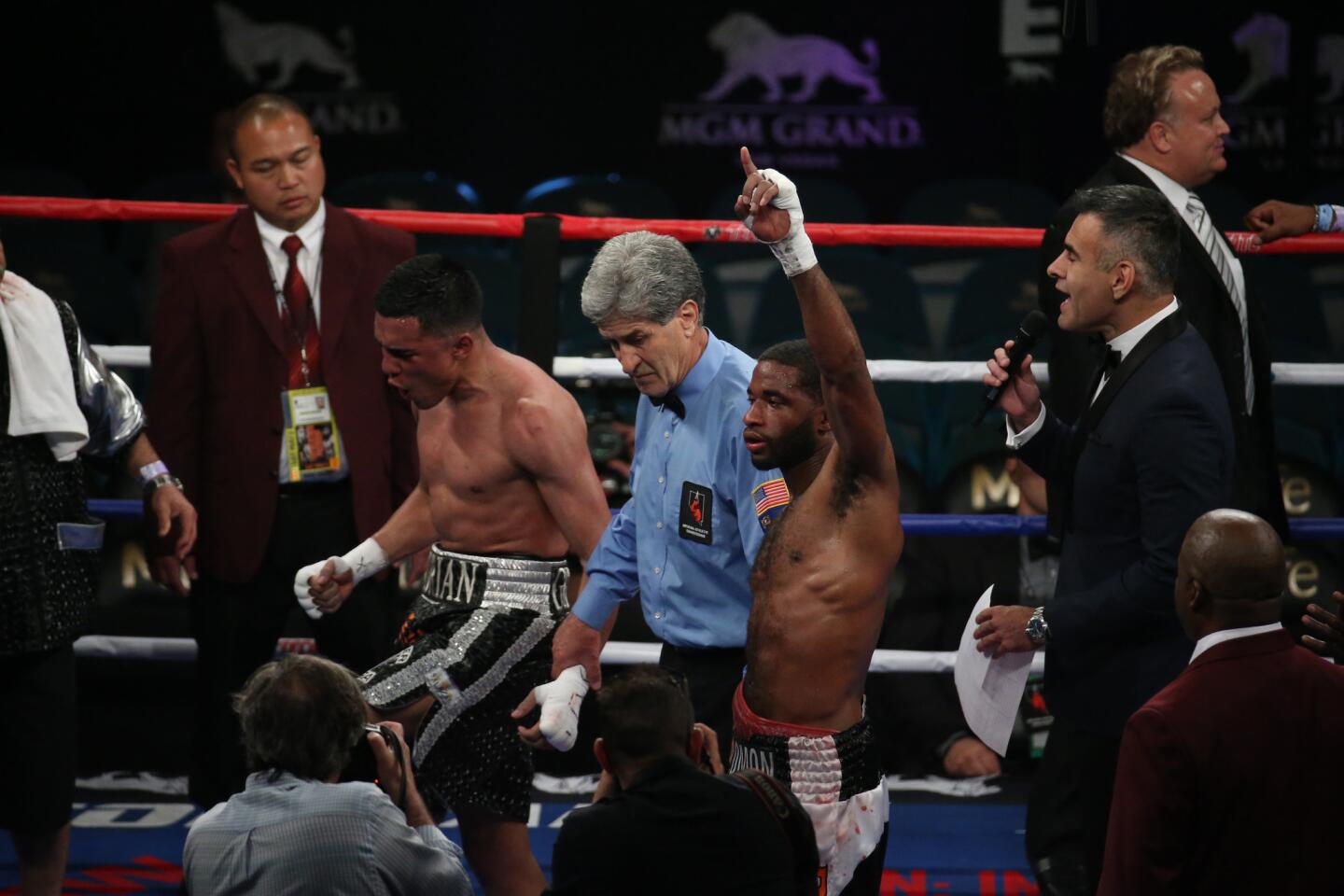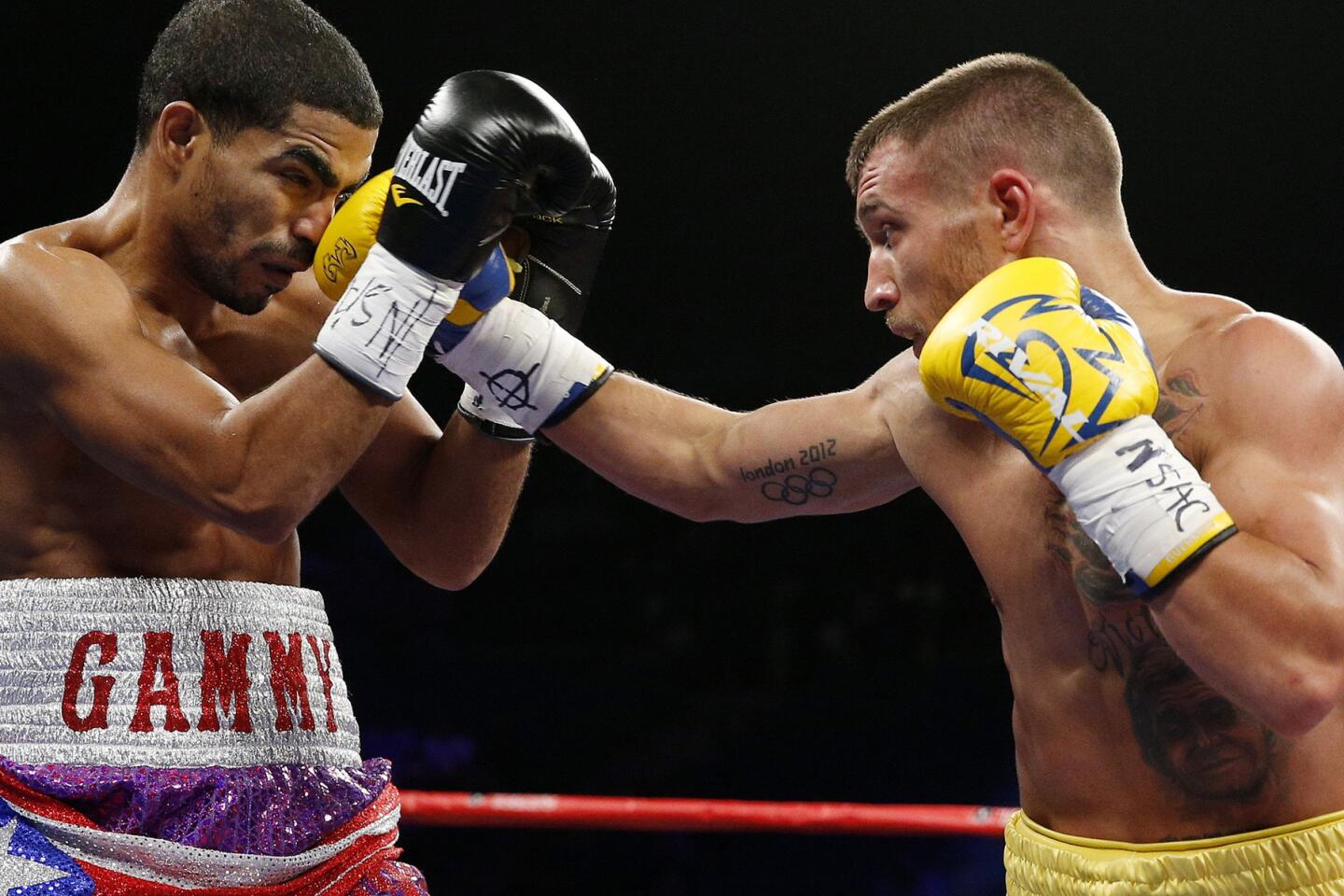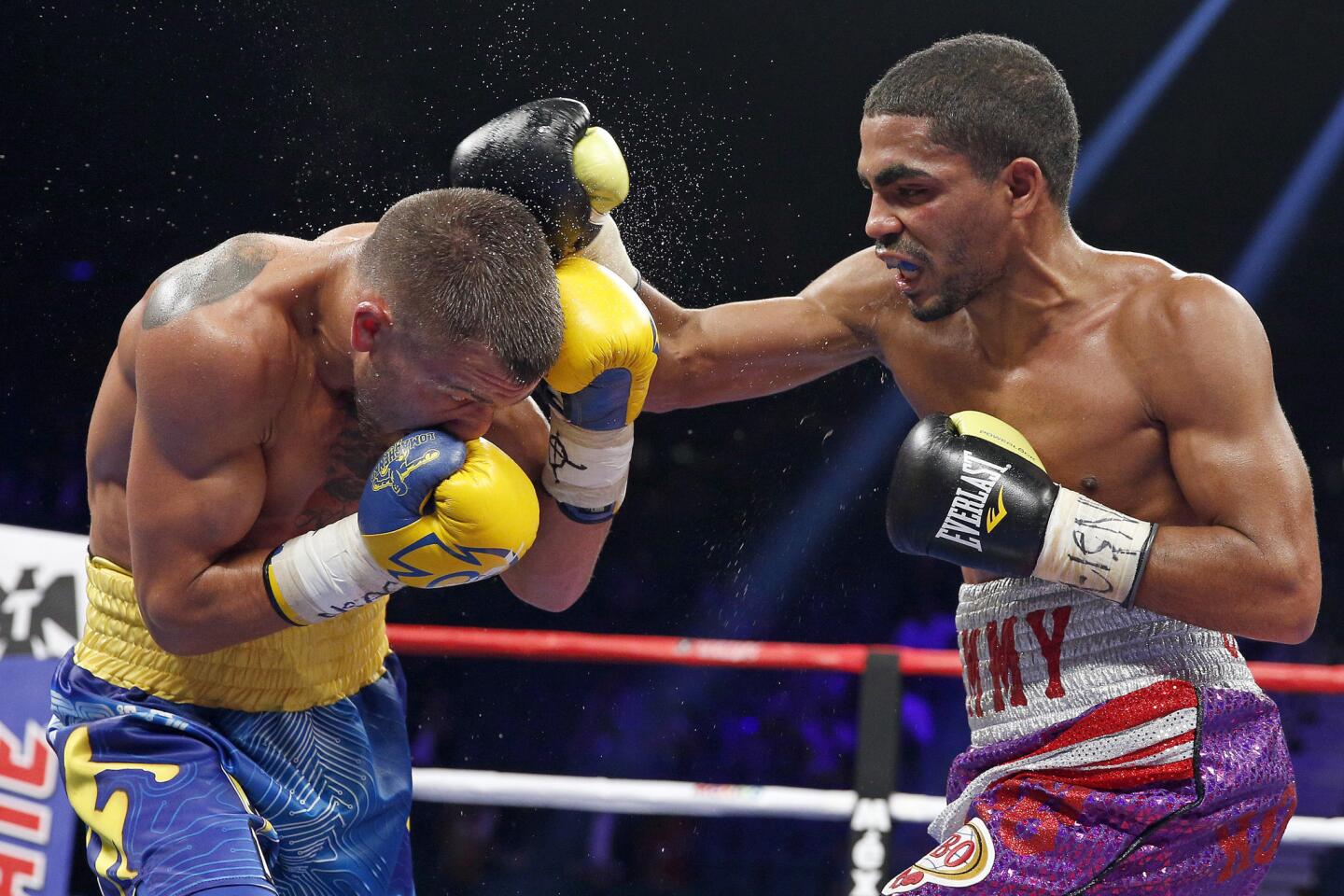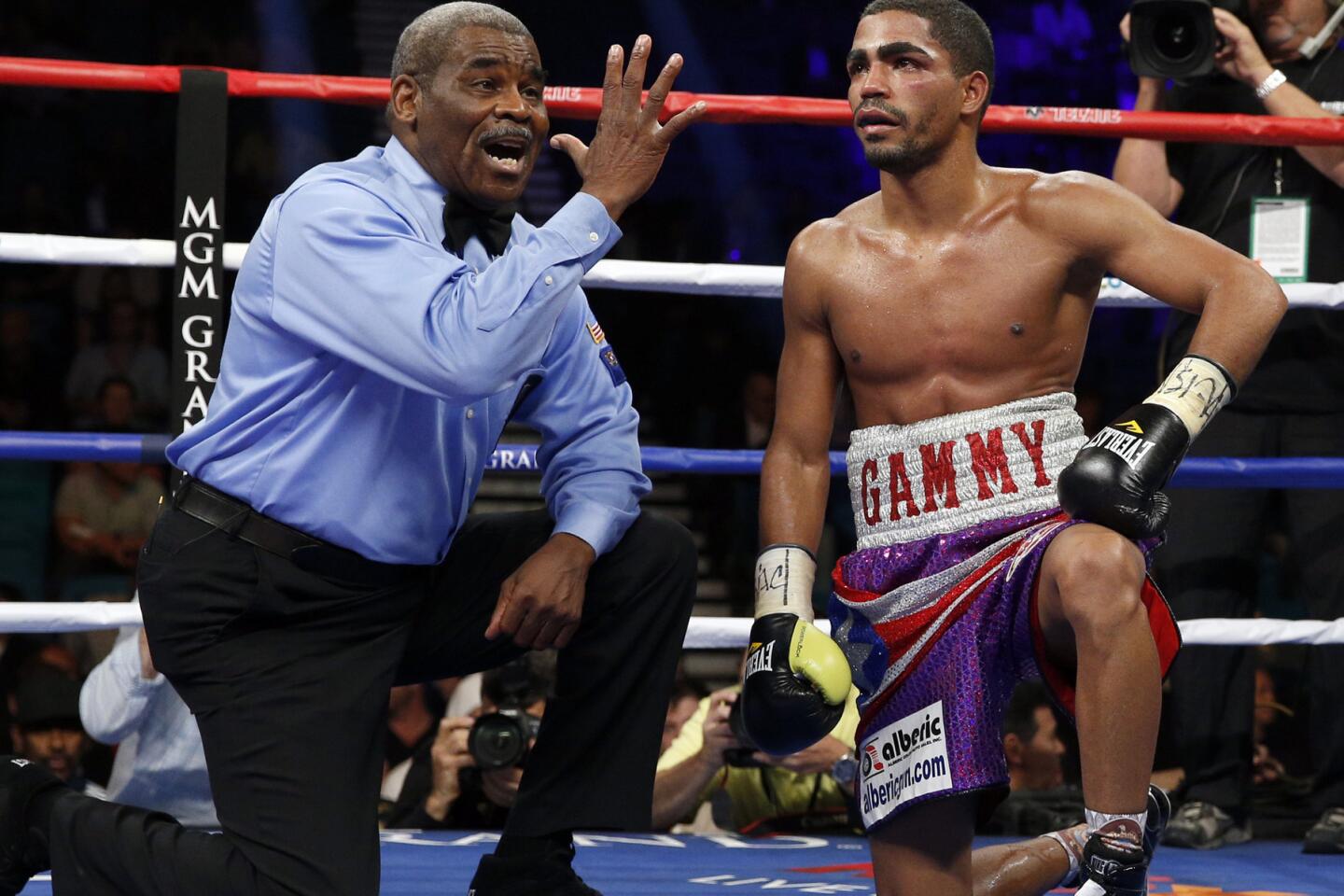Editorial: The other Mayweather-Pacquiao fight
Saturday’s championship bout between Floyd Mayweather Jr. and Manny Pacquiao generated an estimated $475 million in ticket sales and pay-per-view fees, a tribute to the promoters’ ability to frame the long-delayed fight between two past-their-prime welterweights as an epic event. So masterful was their marketing that many fans resorted to watching bootlegged versions of the broadcast sent from cellphone cameras pointed at TV screens.
Not satisfied with their record-breaking haul, the promoters are now threatening to sue the companies that provided the technology used to broadcast the bootlegs — a technology, by the way, that the promoters themselves had used to build the pre-fight hype. Instead of wasting the courts’ time, they should think about the opportunities the new technology presents to satisfy their audience.
Copyright owners have been fighting a losing battle against online bootlegging ever since the original Napster song-copying service introduced mass-scale piracy in 1999. Napster turned every computer into a potential source of free music; now, live streaming technologies such as Skype, Twitter’s Periscope, Meerkat and Apple’s FaceTime turn every smartphone into a potential source of free video. Unlike Napster, though, these technologies were created for a legitimate purpose: to let people stream live, original videos. Piracy is just an unfortunate byproduct.
Why would anybody watch the fight of the century through the lens of a smartphone? Well, that might have something to do with ticket prices that started near $3,000 and pay-per-view fees of $90 to $100 (the highest ever for a fight). But it also might have something to do with the social nature of Periscope et al, which give users a seat in a virtual venue with an interactive global audience.
Offended by the online moochers, the president of Top Rank Inc., which promoted the fight alongside Mayweather Promotions, threatened Sunday to take legal action against the technology companies. The problem for Top Rank is that the law doesn’t require Periscope and its rivals to prevent bootlegging. It requires them to take down bootlegs promptly when alerted to them (which Twitter says it did), and it bars them from encouraging people to use their networks to commit piracy.
It’s one thing to target companies that obtain and deliver bootlegged goods. It’s another to take on the provider of a communications tool that’s protected against liability by federal law.
Rather than lashing out at such grass-roots broadcasting platforms, Top Rank needs to take a step back and consider what happened over the weekend. The biggest story wasn’t that some people found a way to watch the fight for free, but that so many paid to do so.
Follow the Opinion section on Twitter @latimesopinion and Facebook
More to Read
A cure for the common opinion
Get thought-provoking perspectives with our weekly newsletter.
You may occasionally receive promotional content from the Los Angeles Times.
